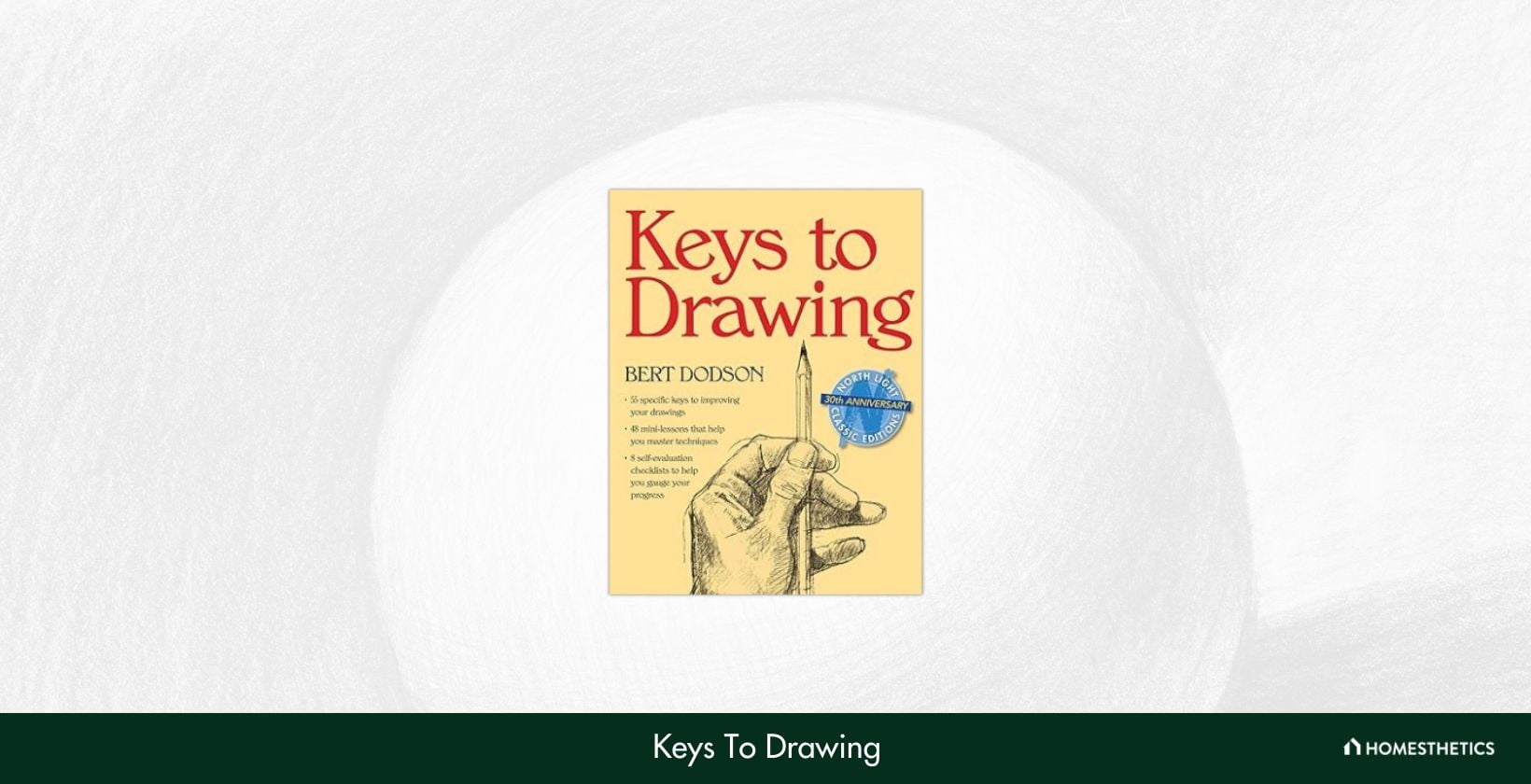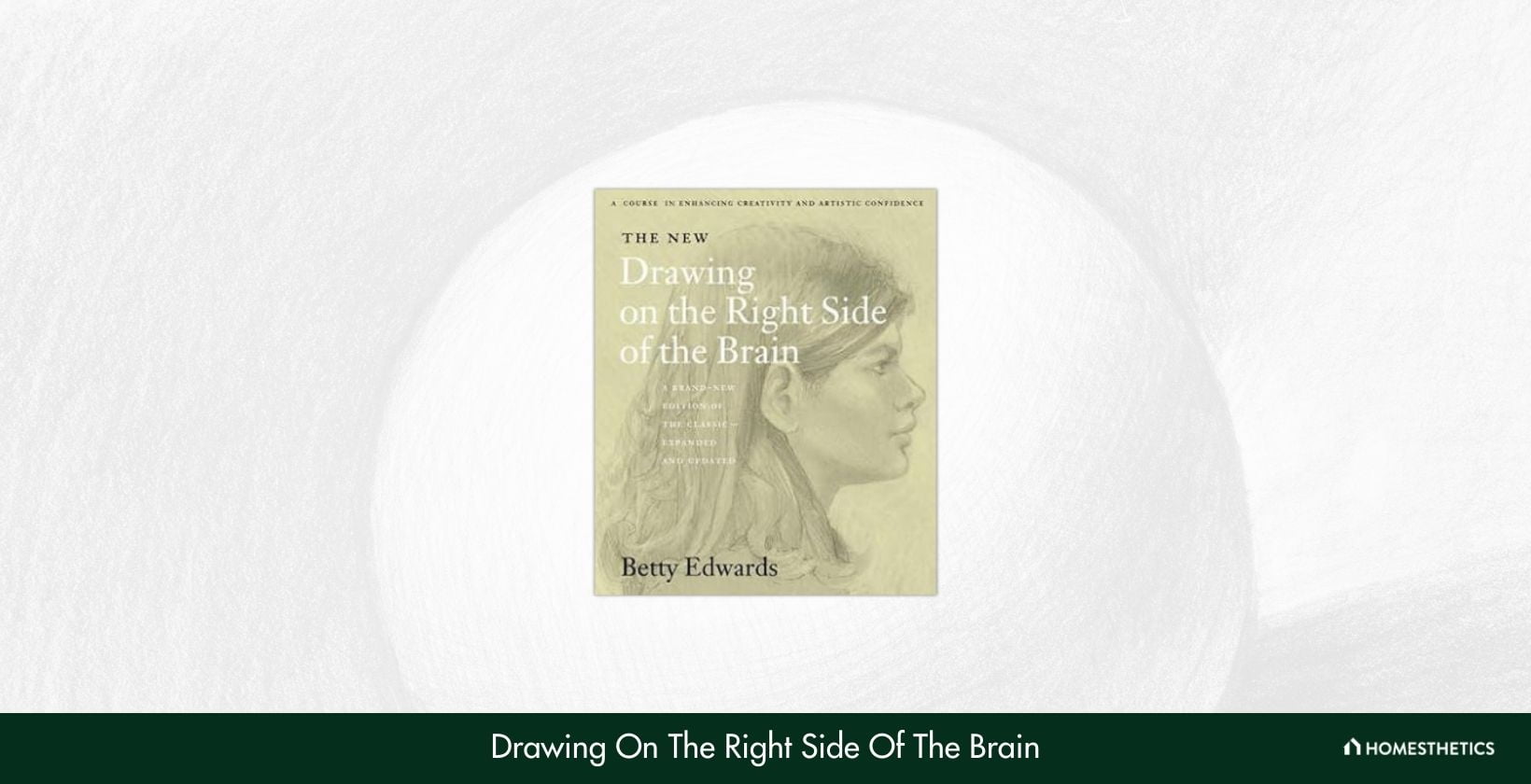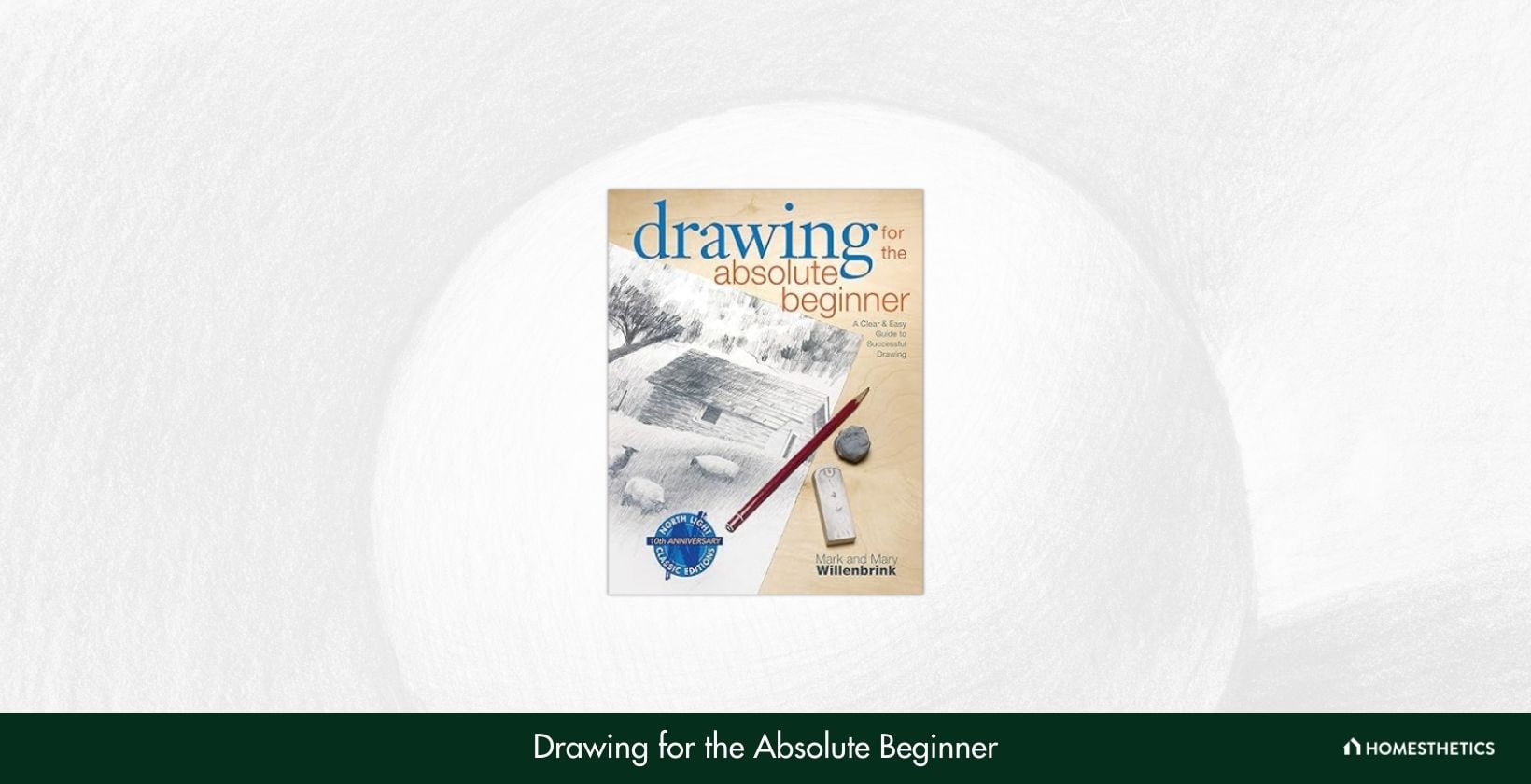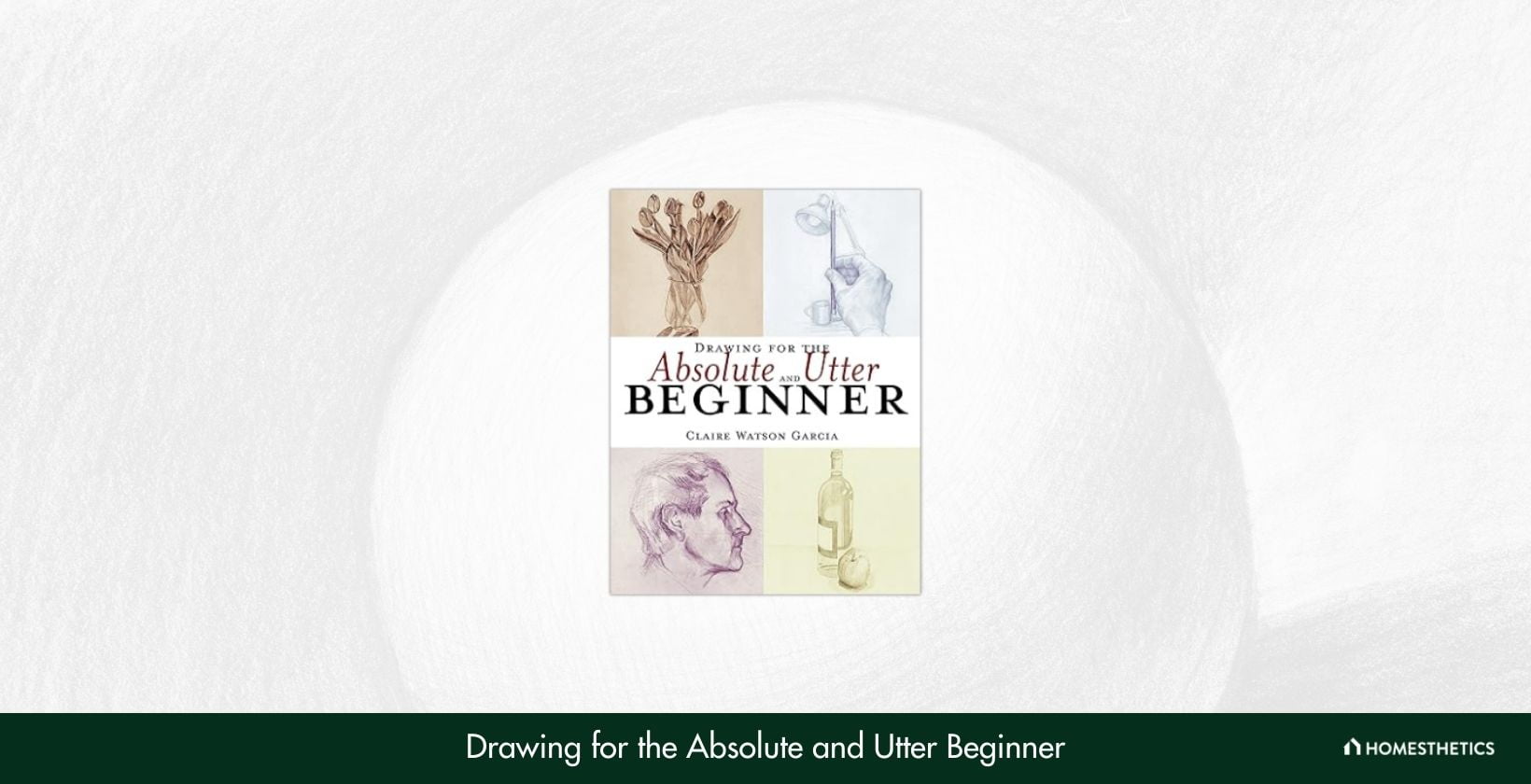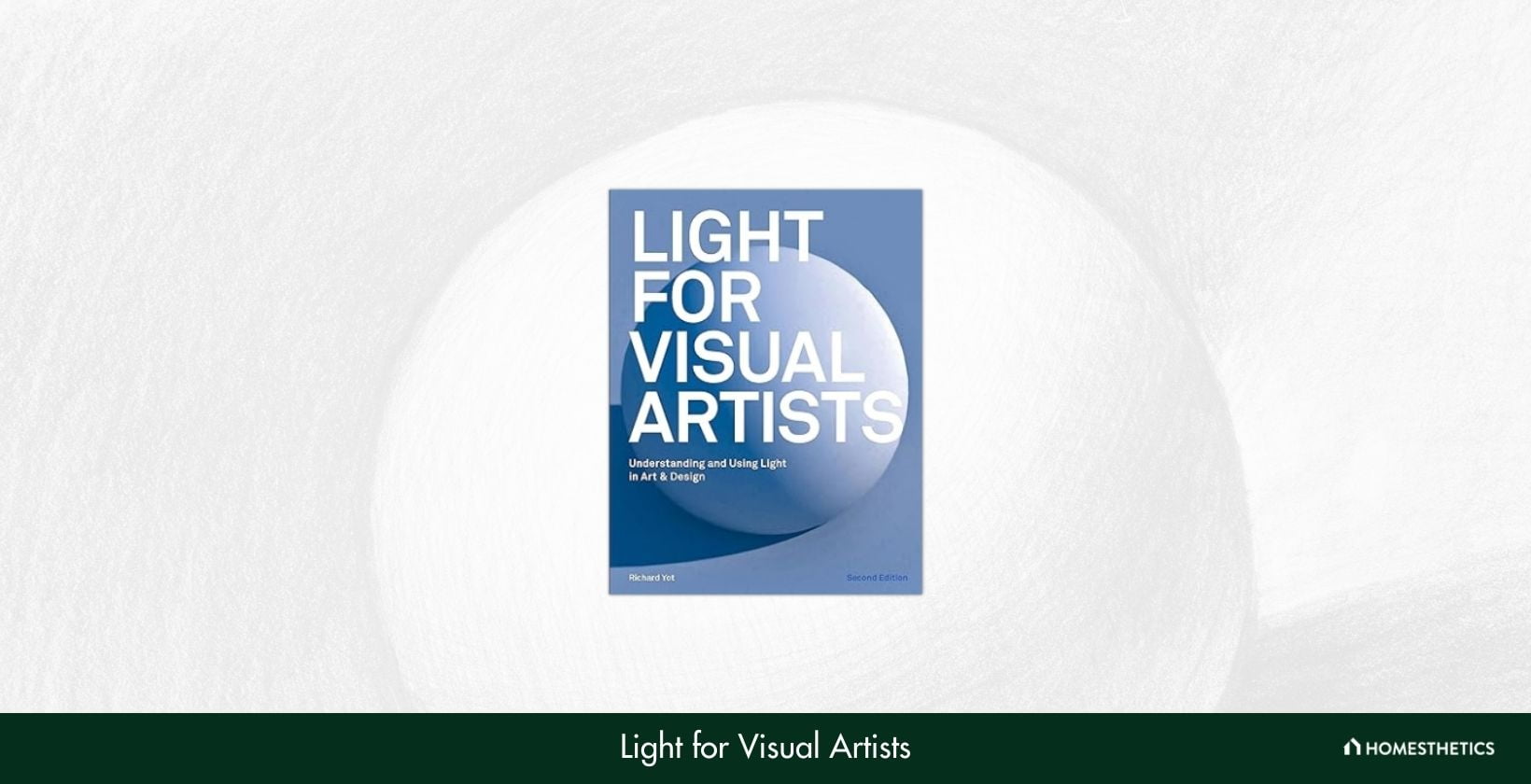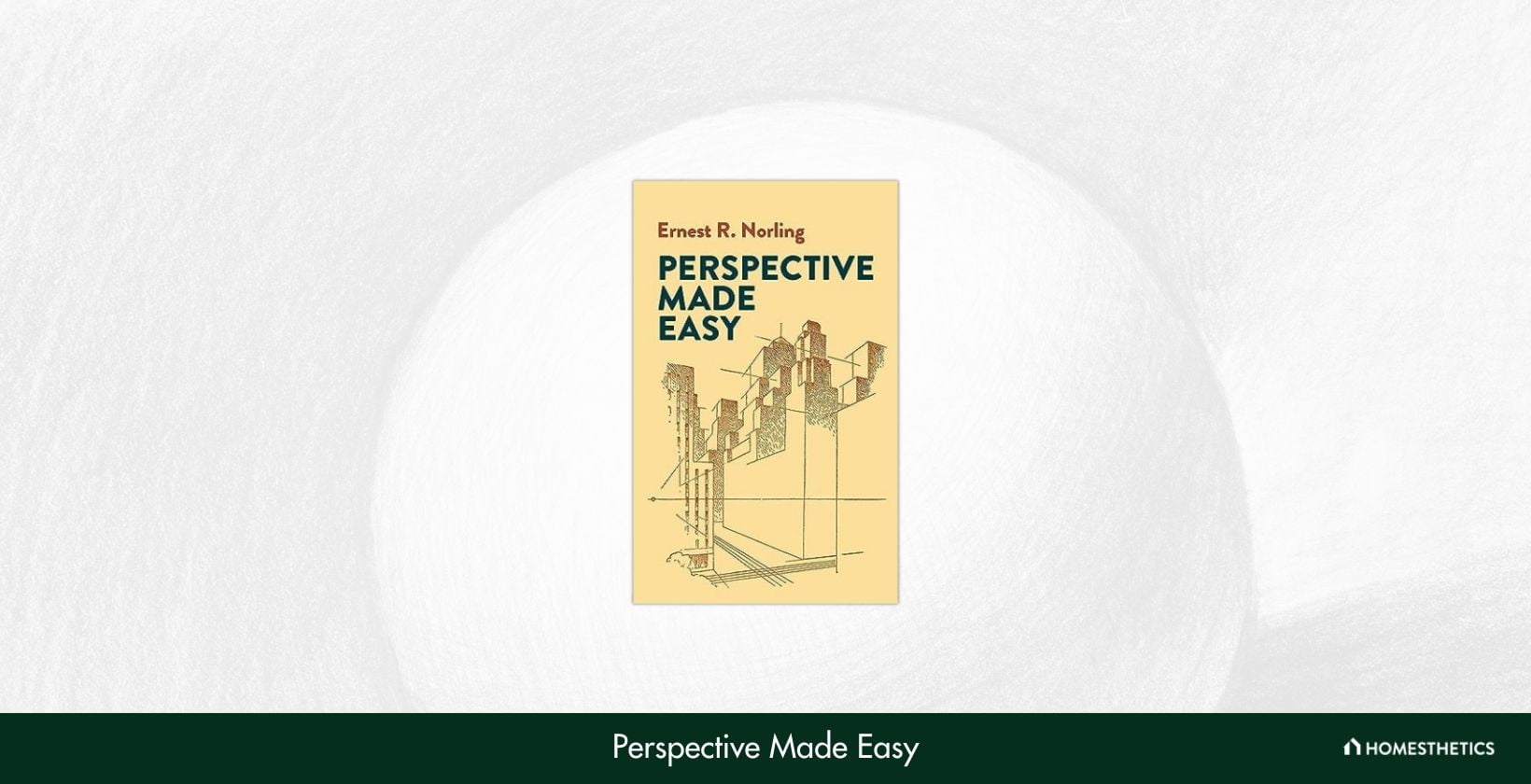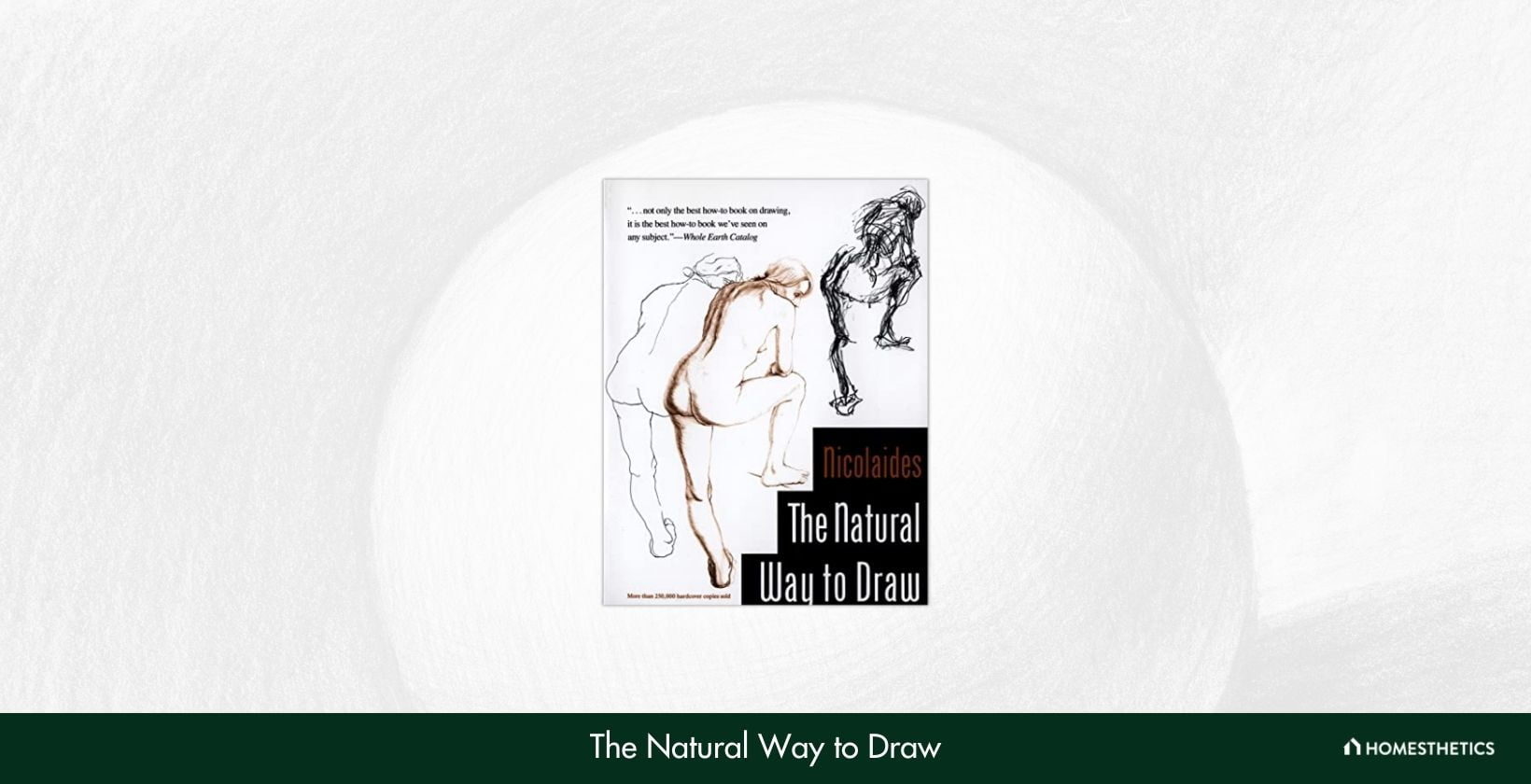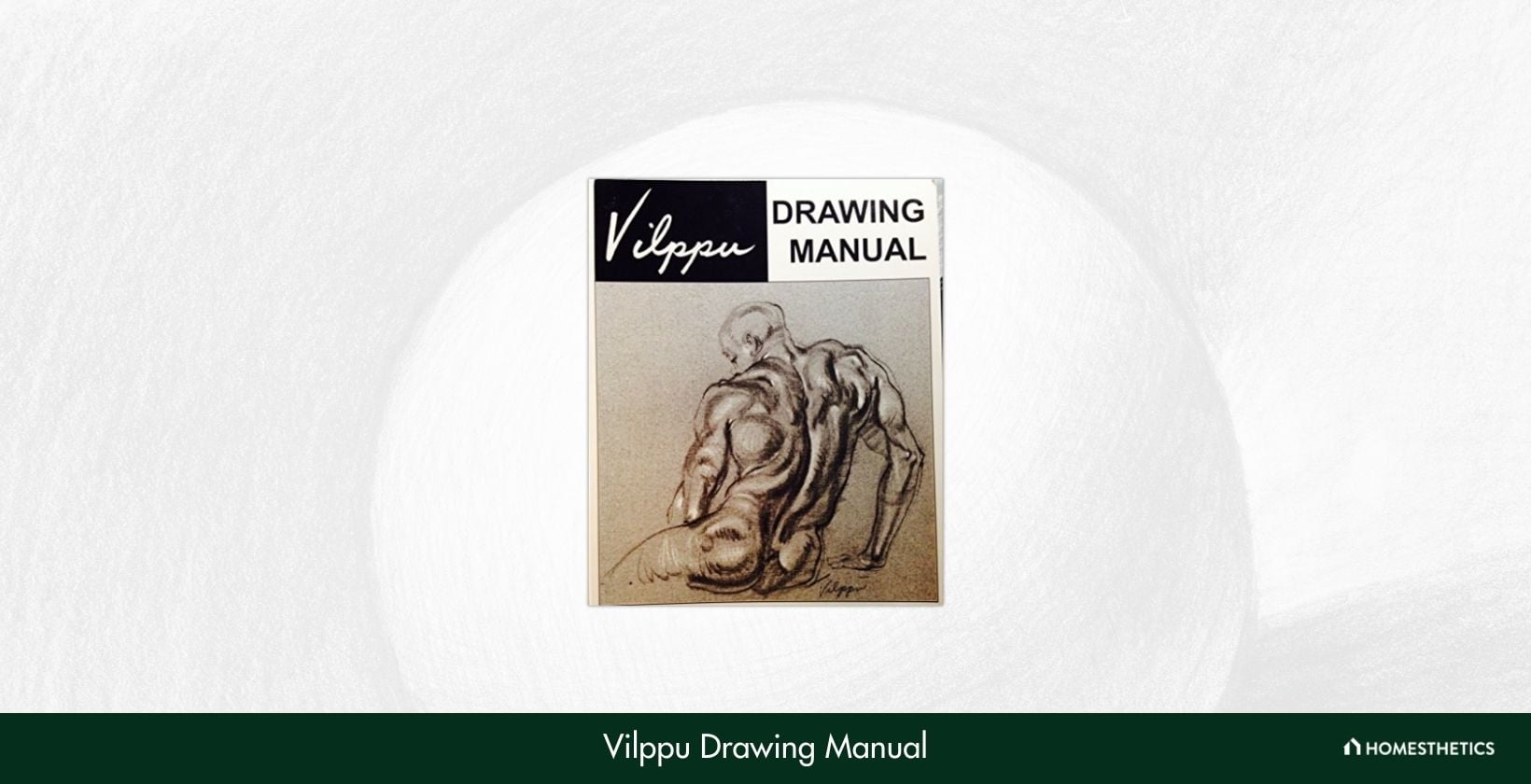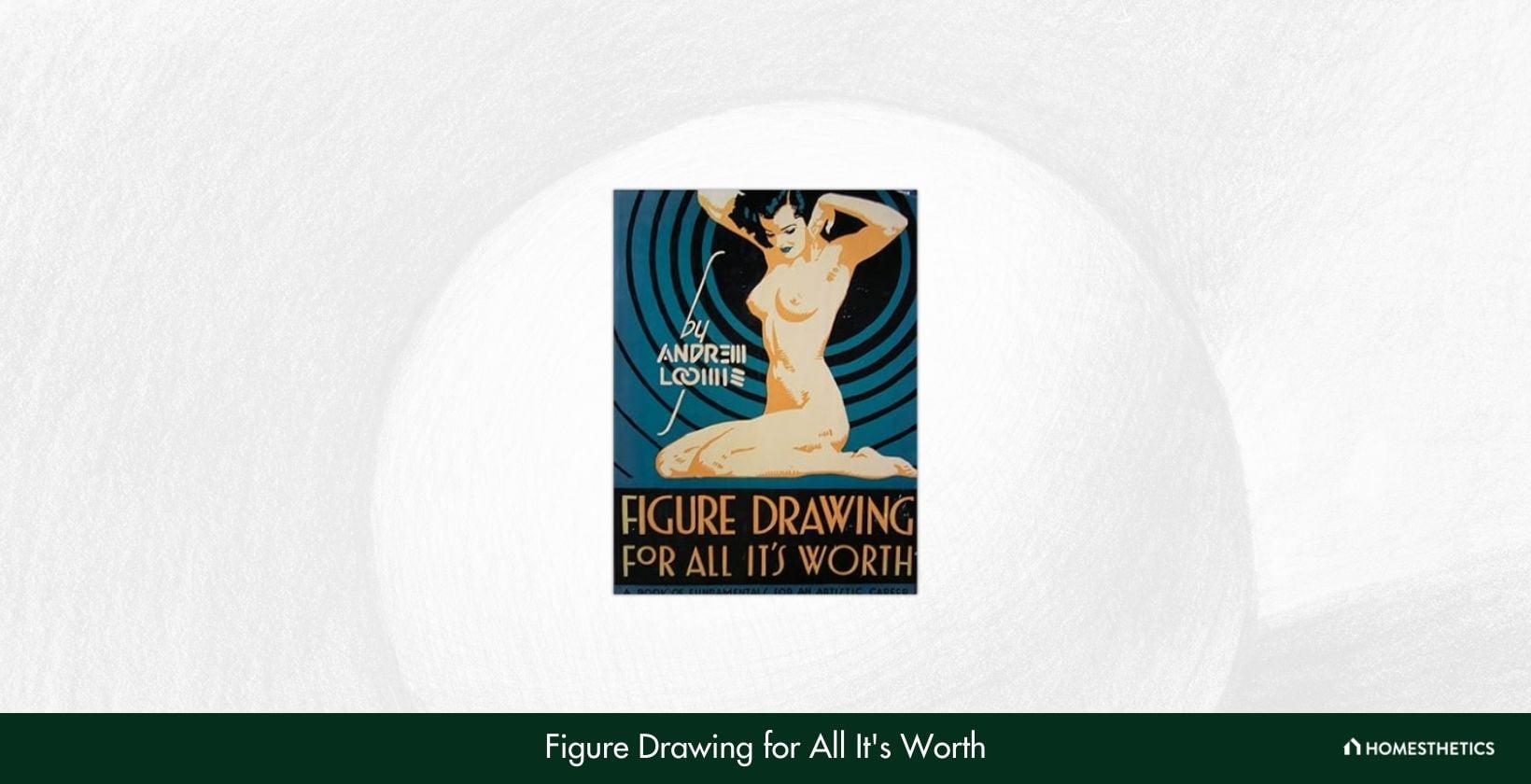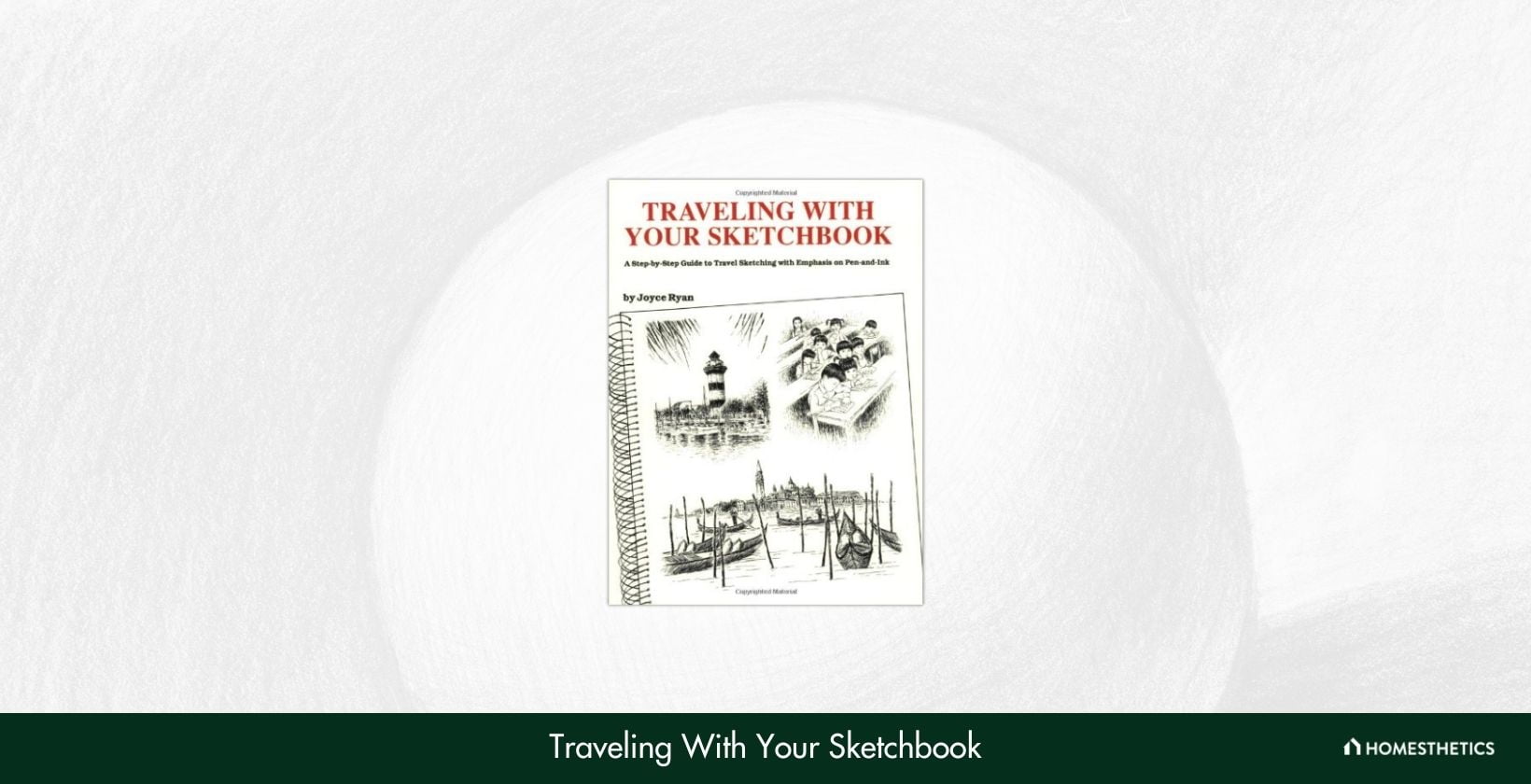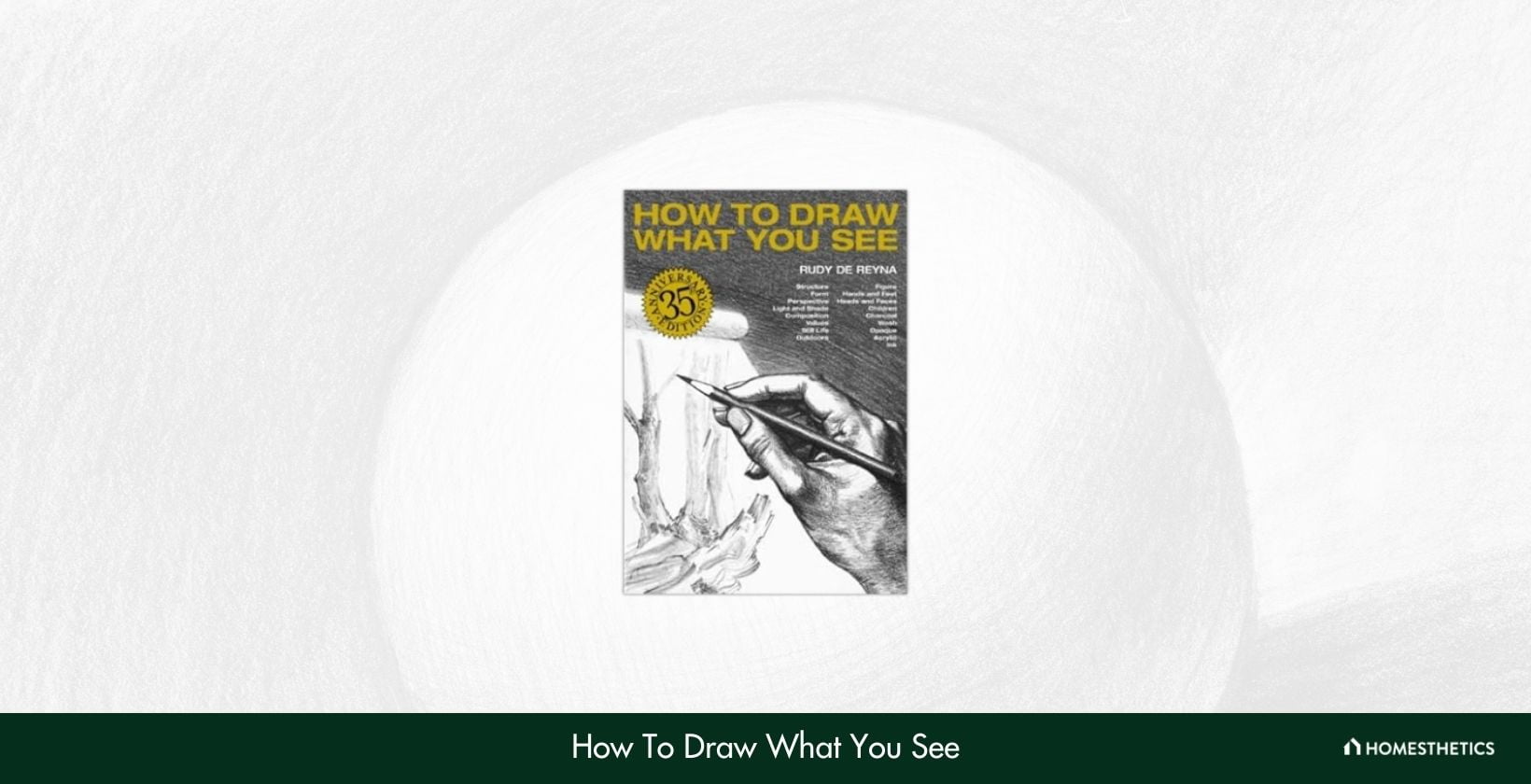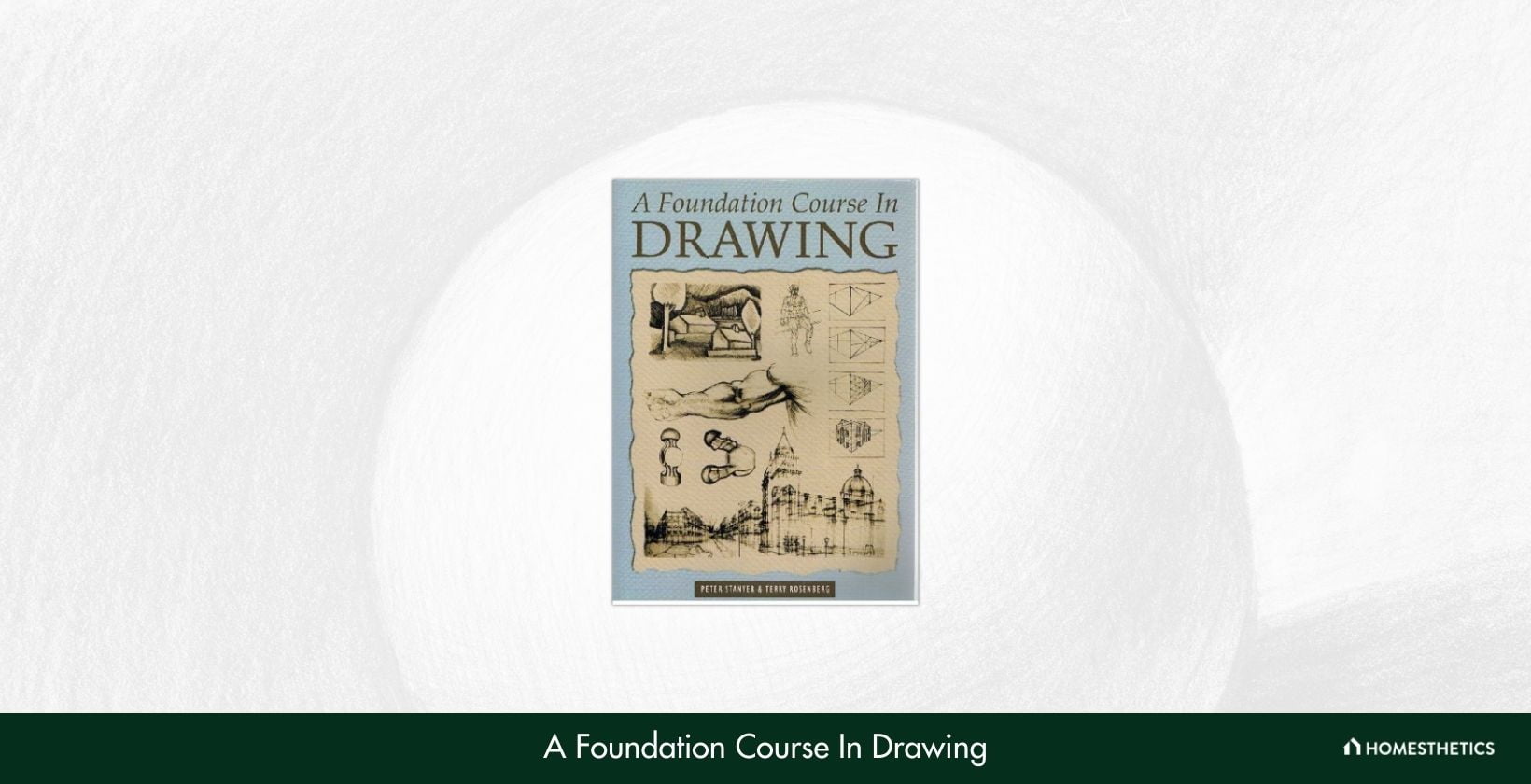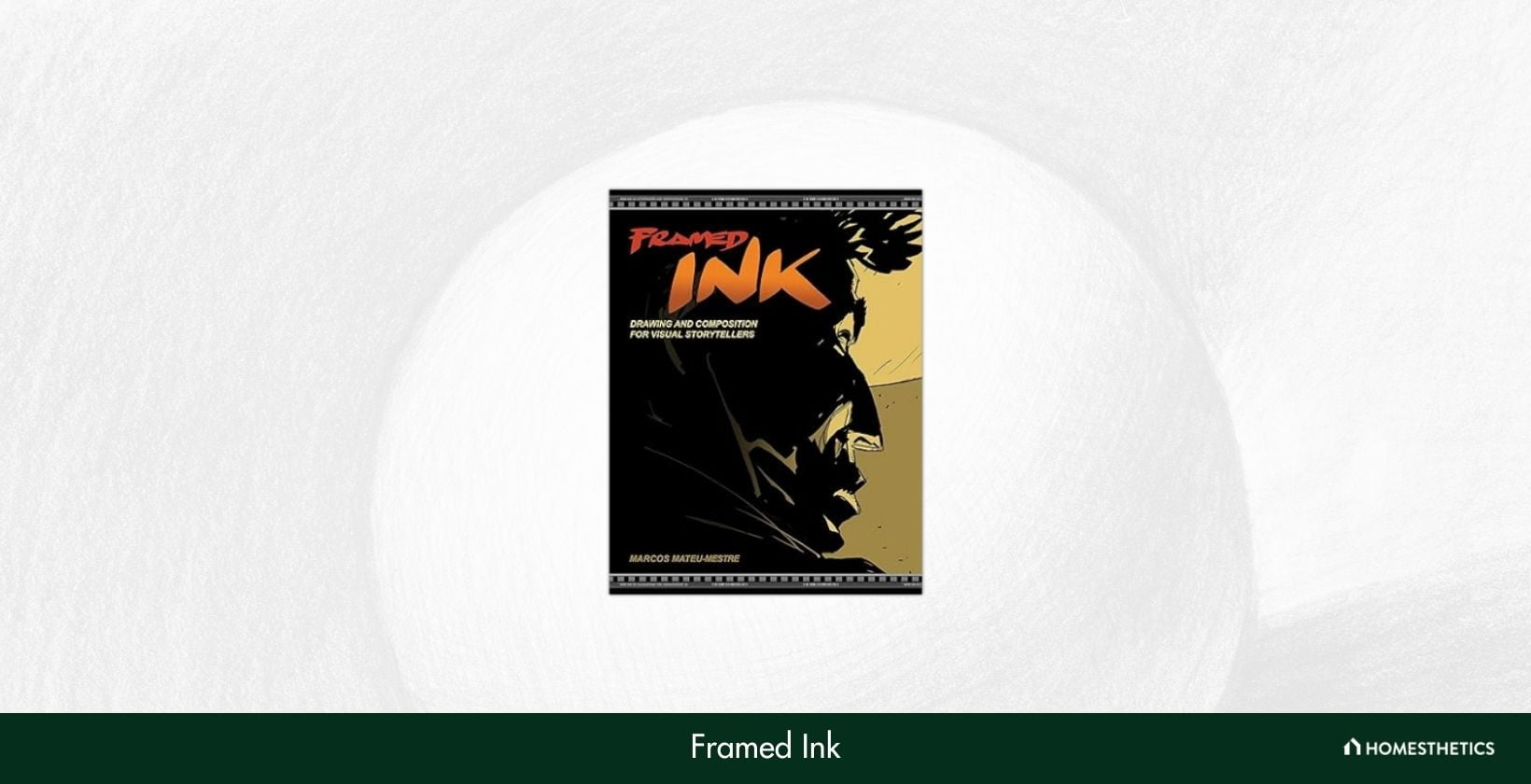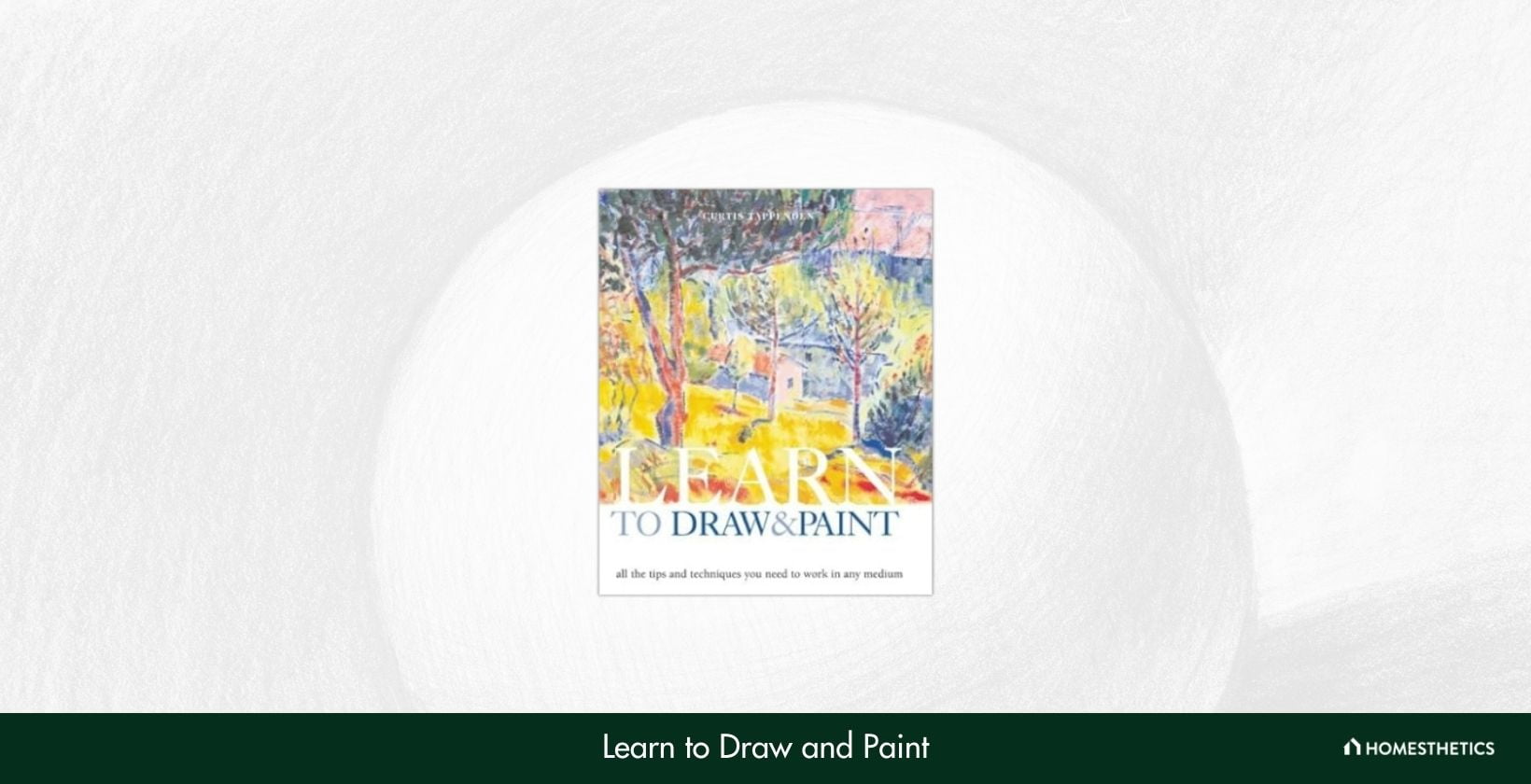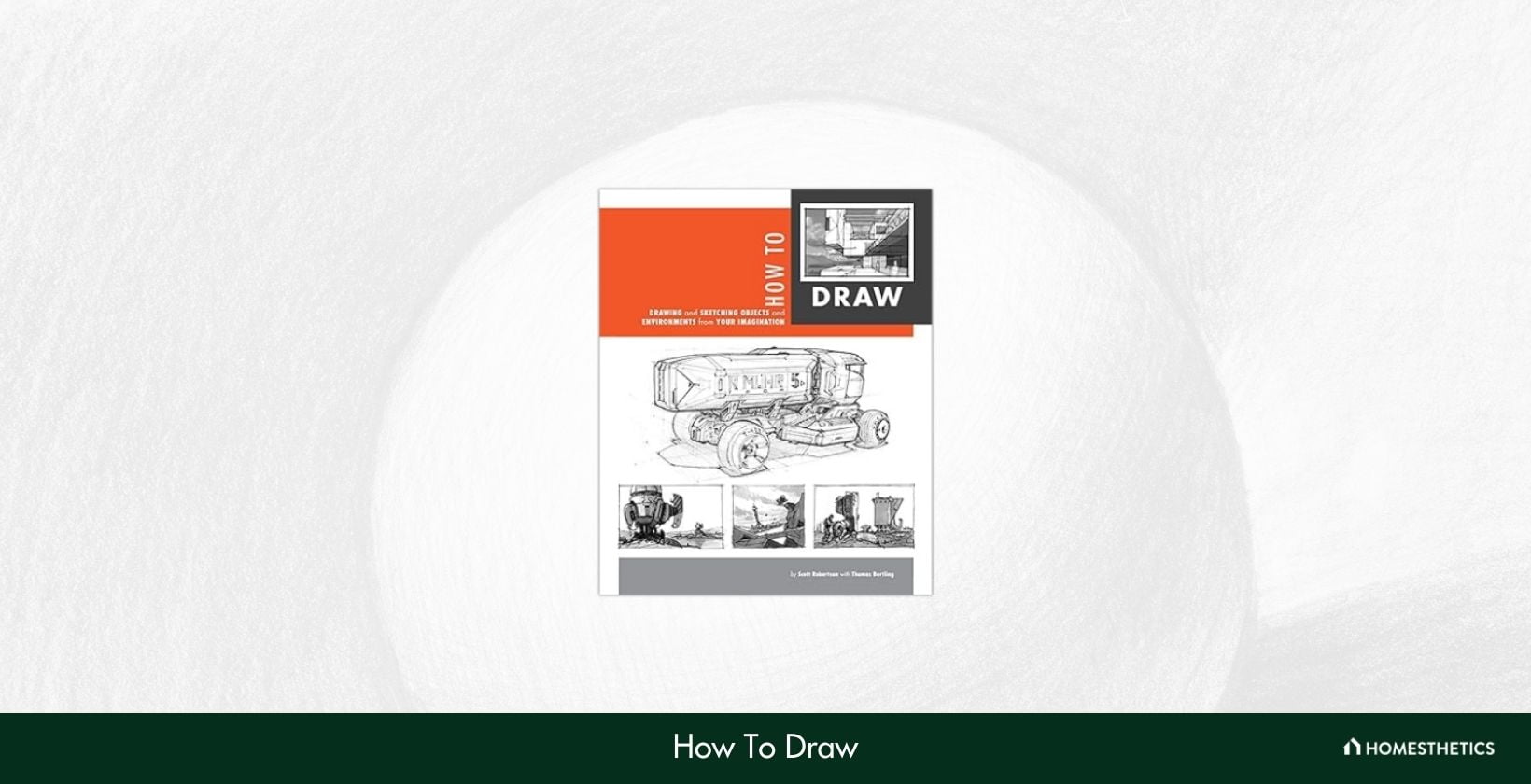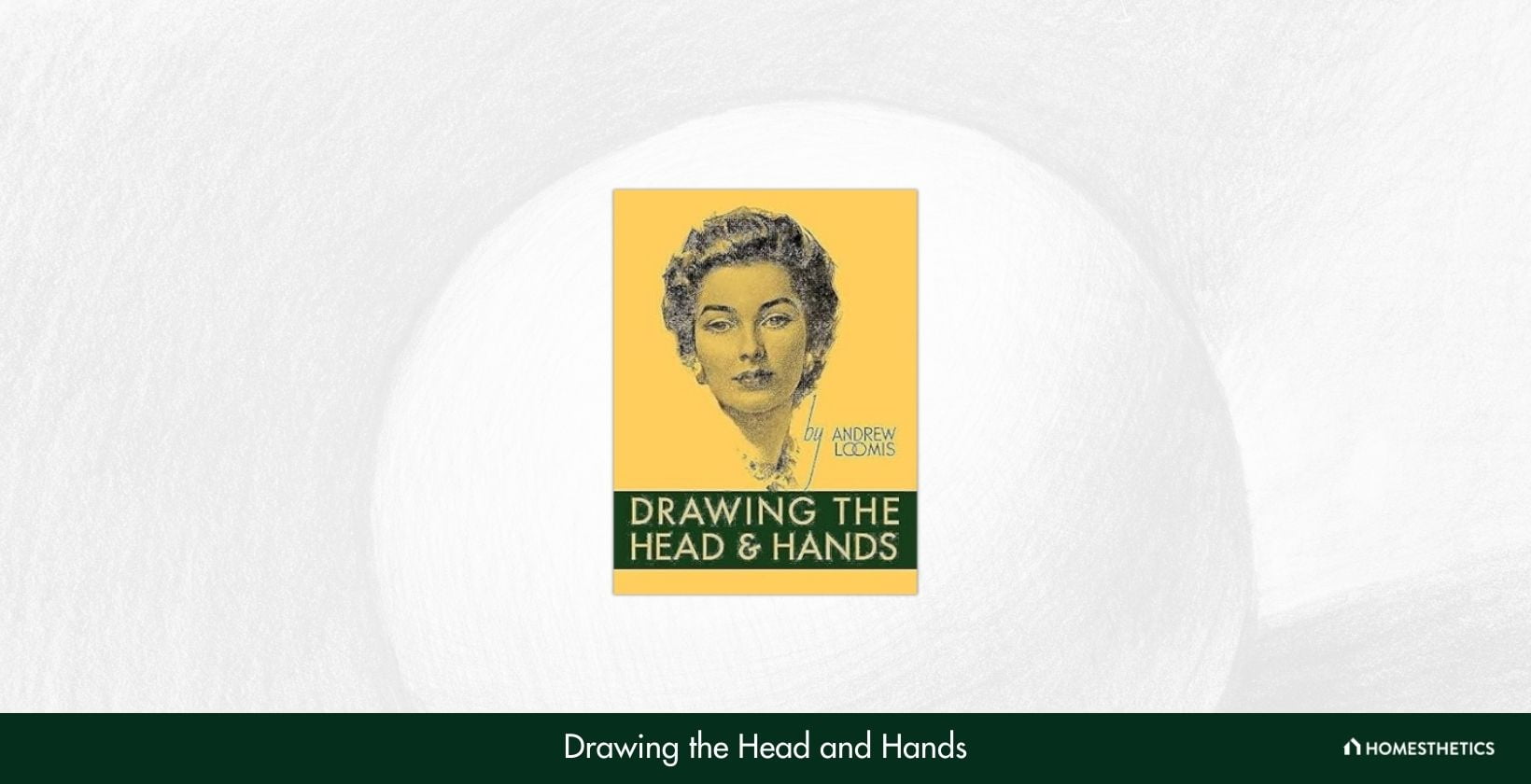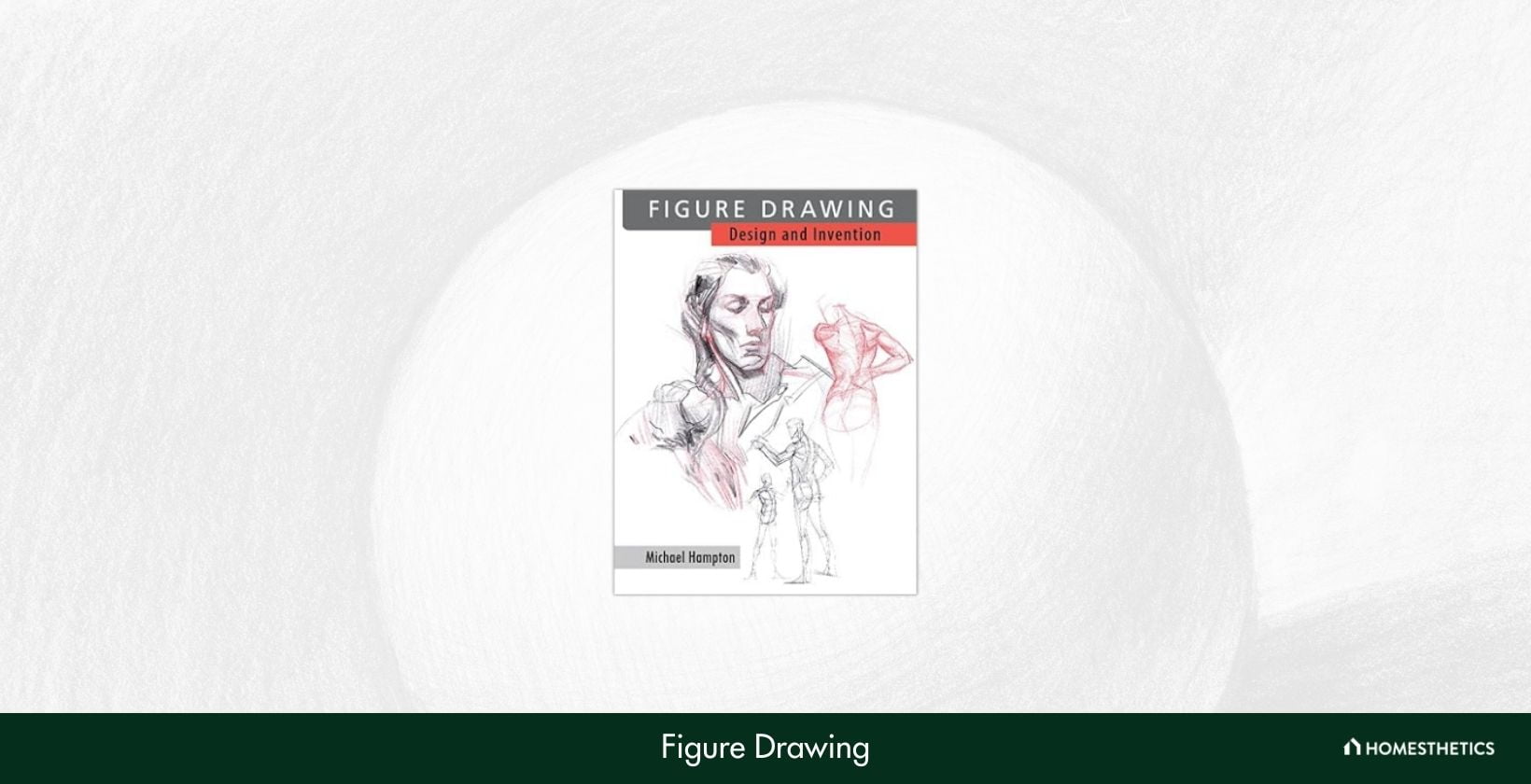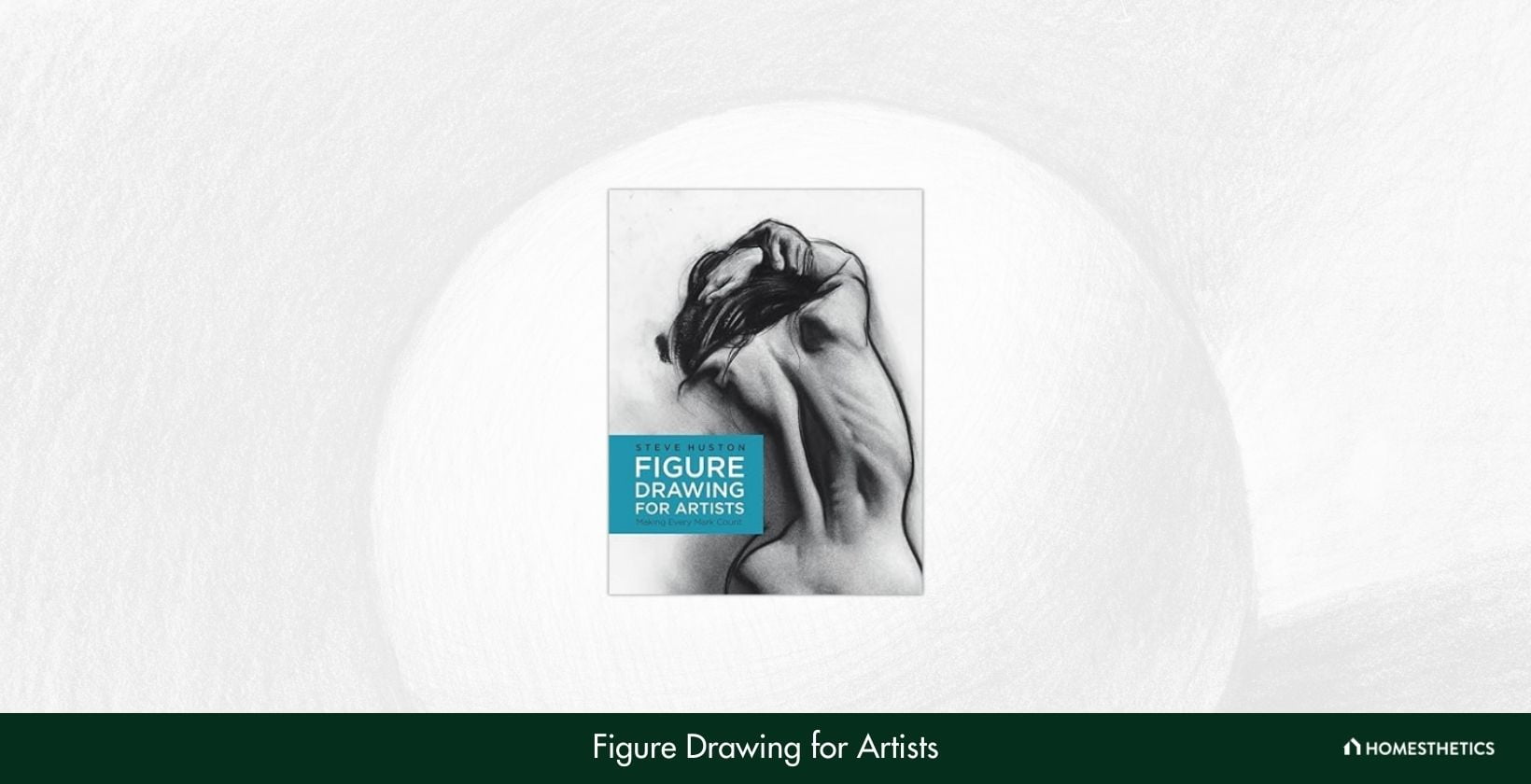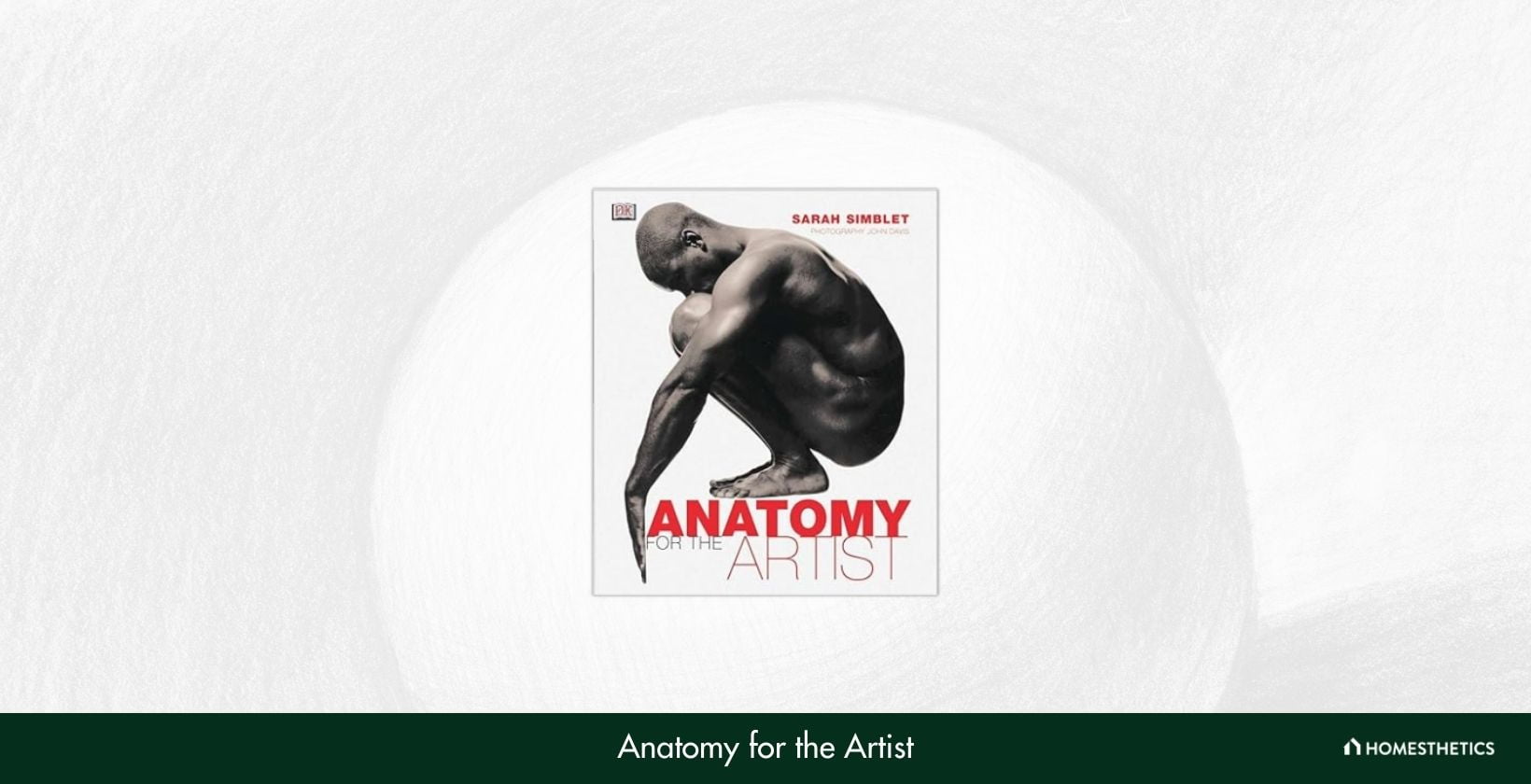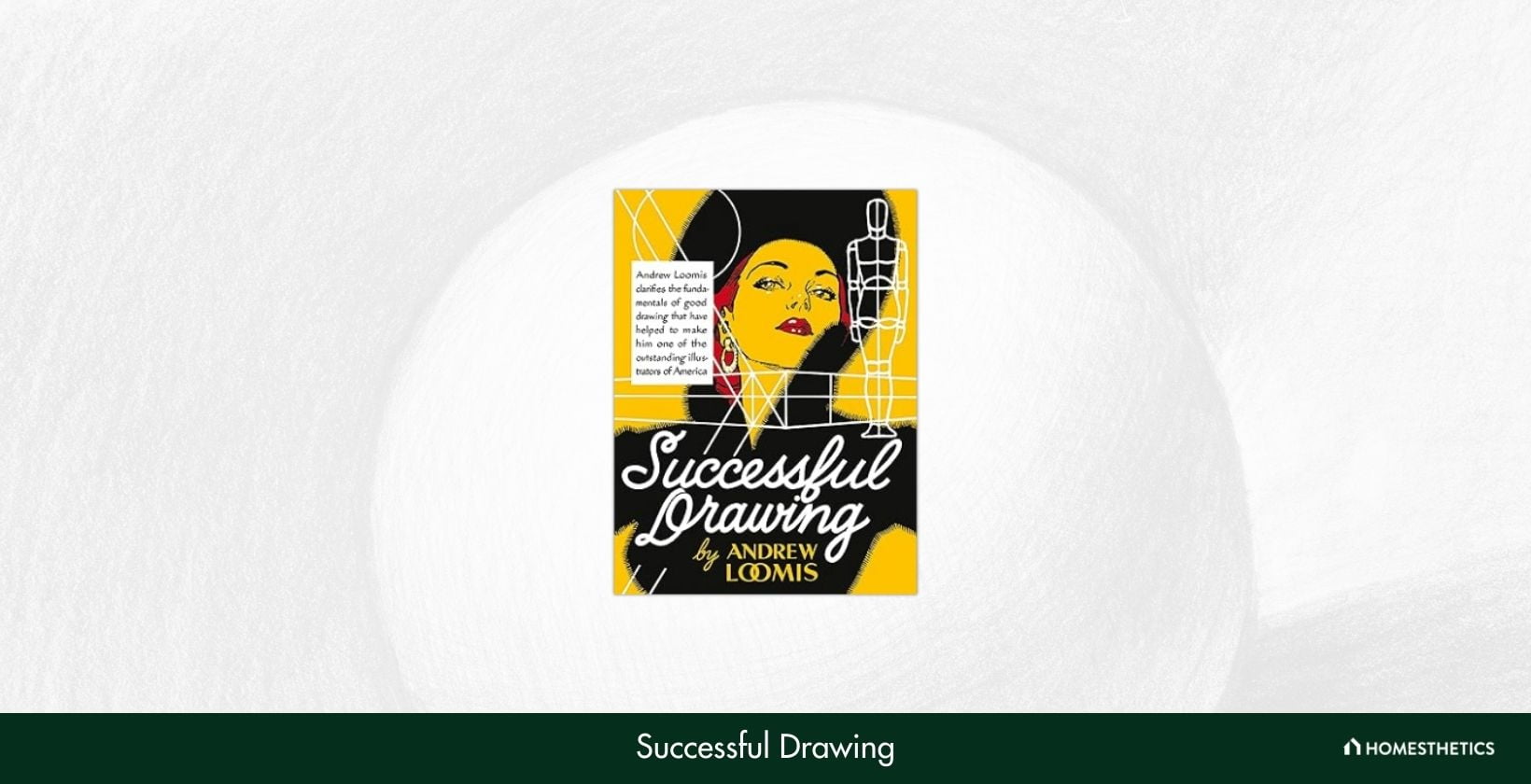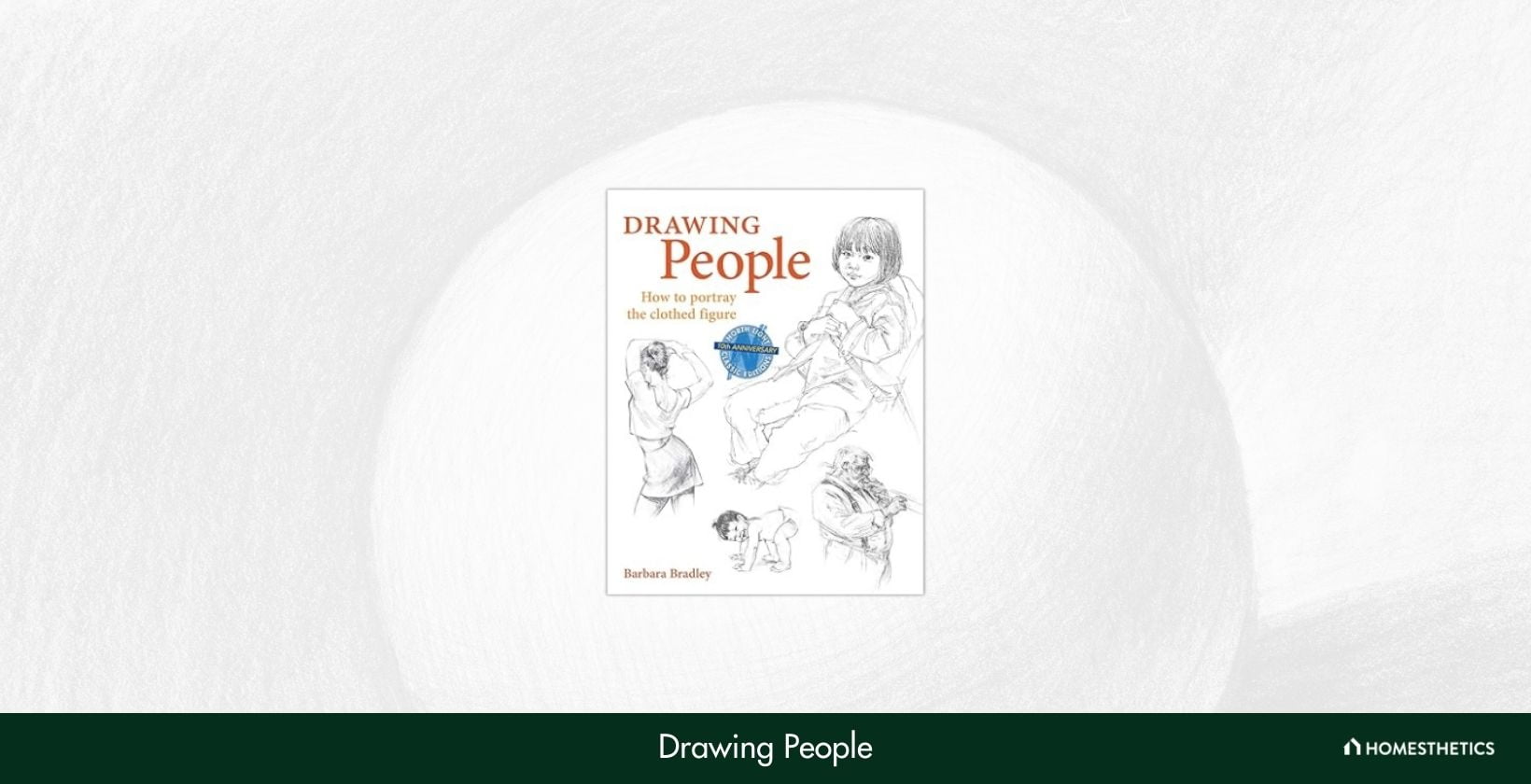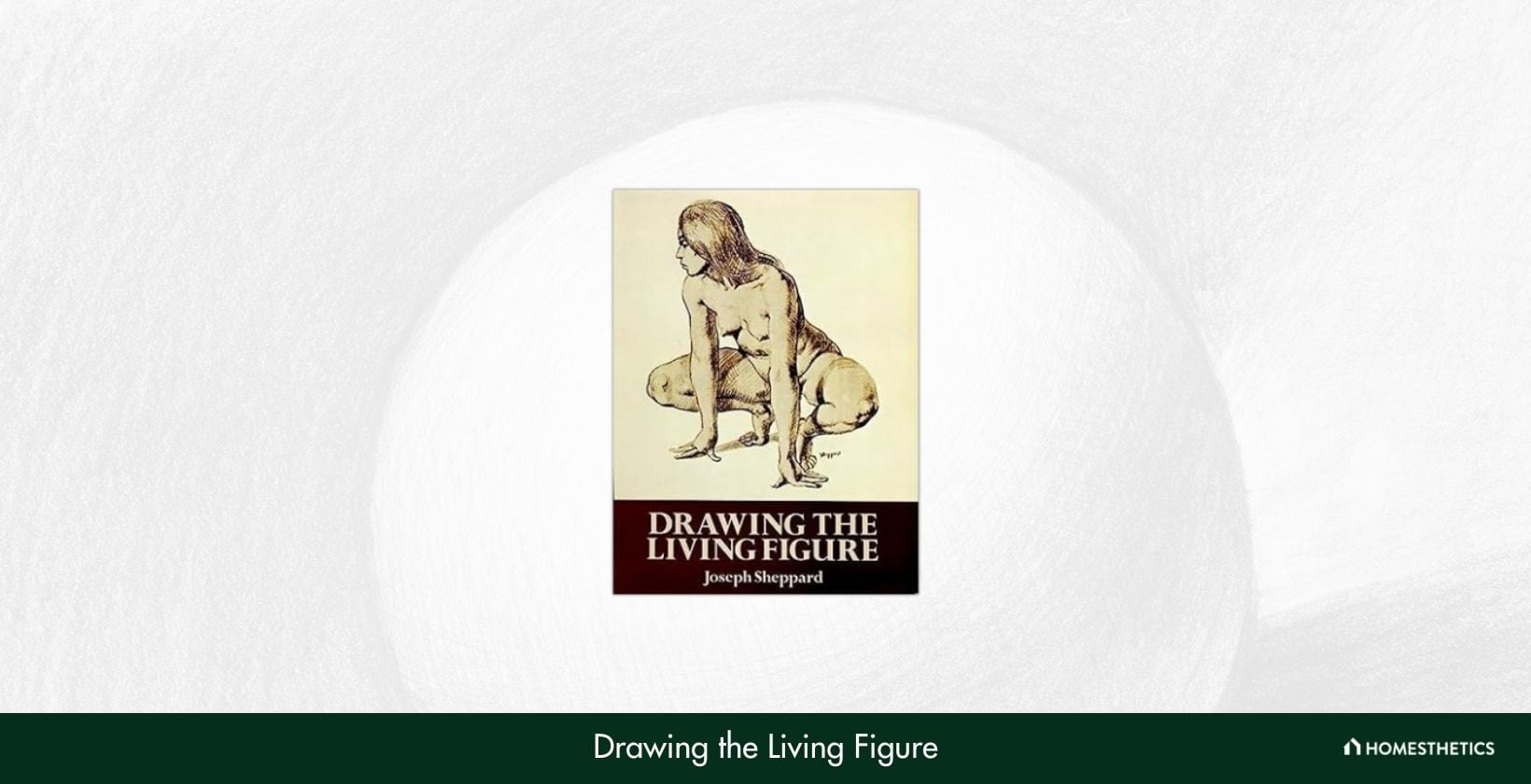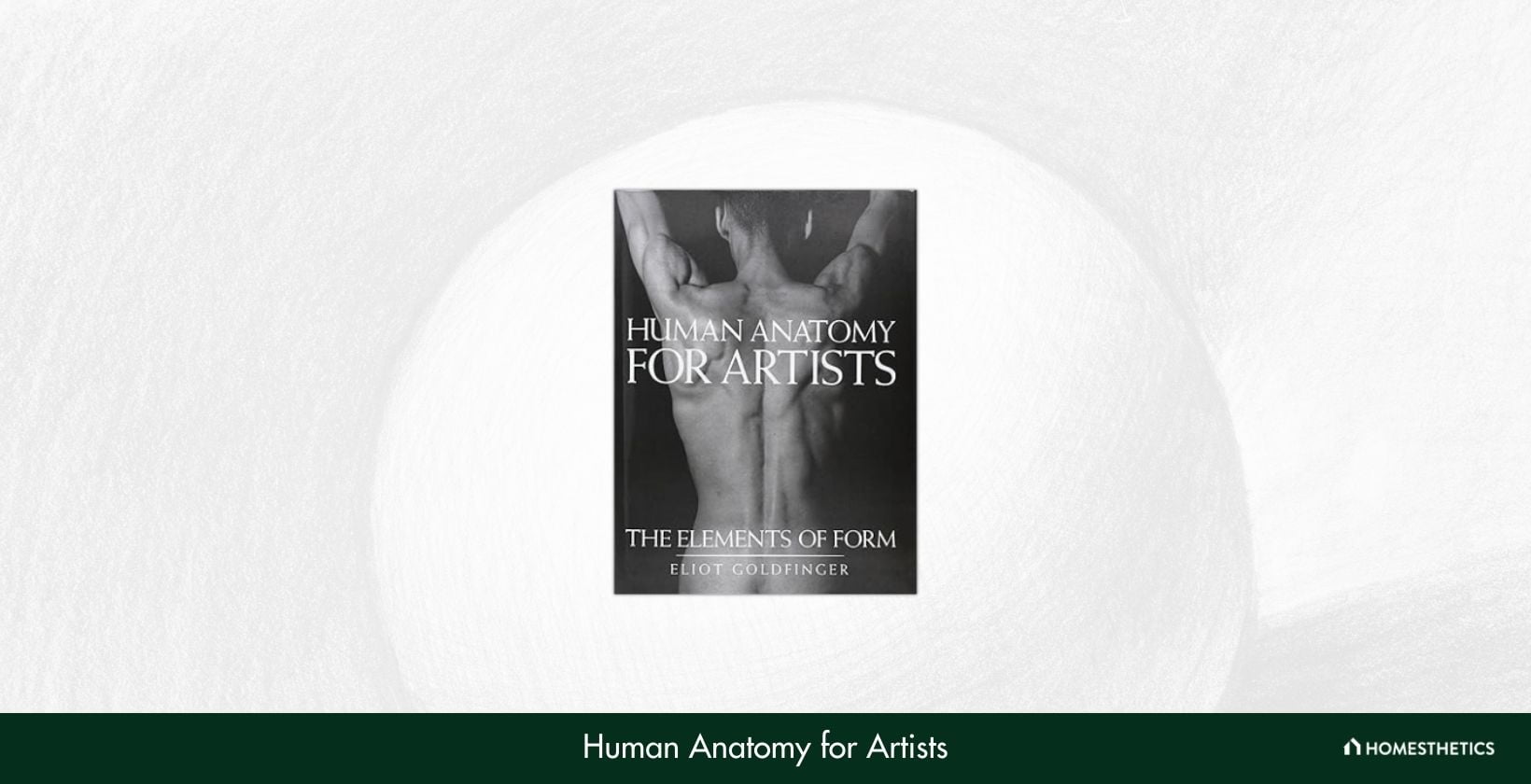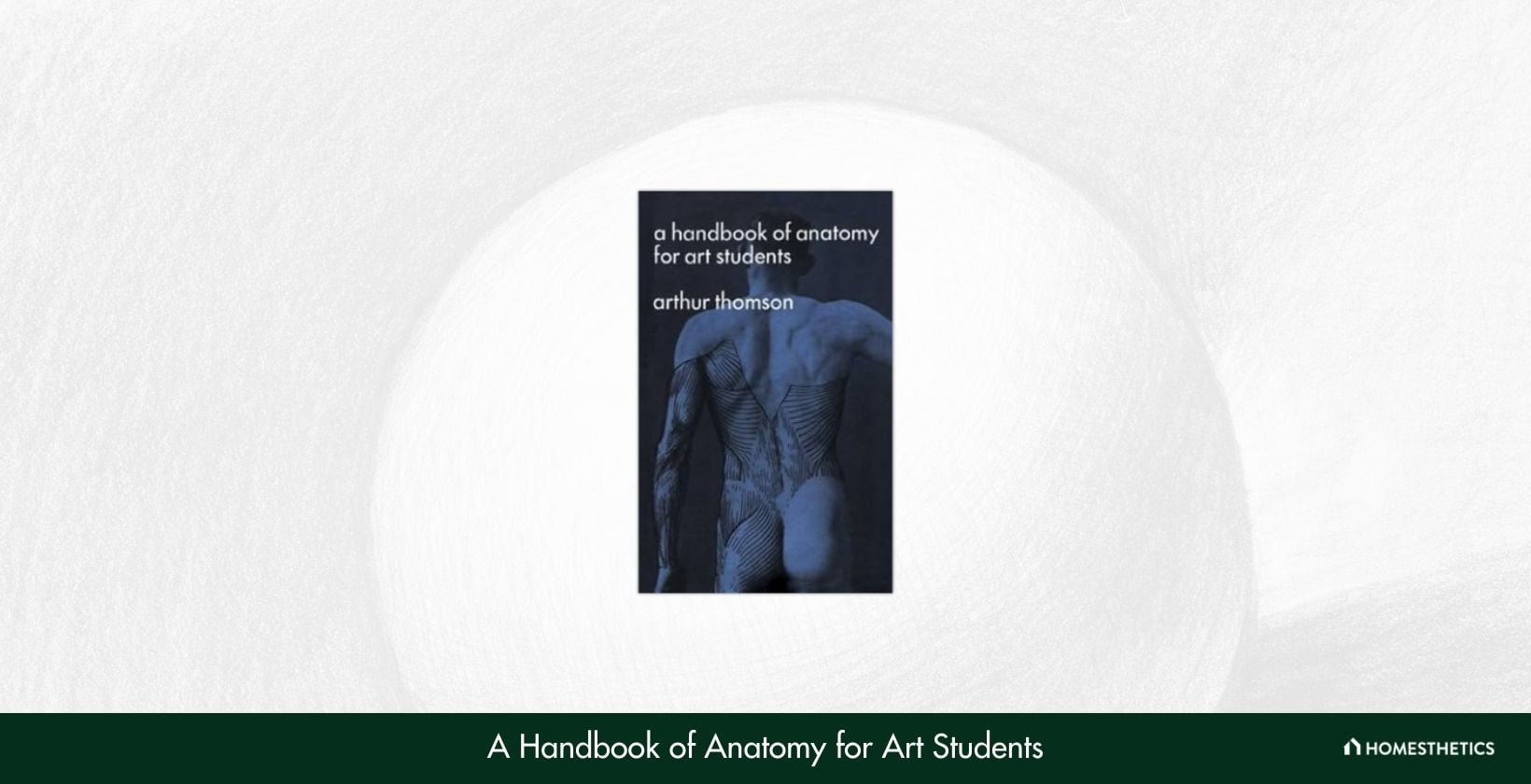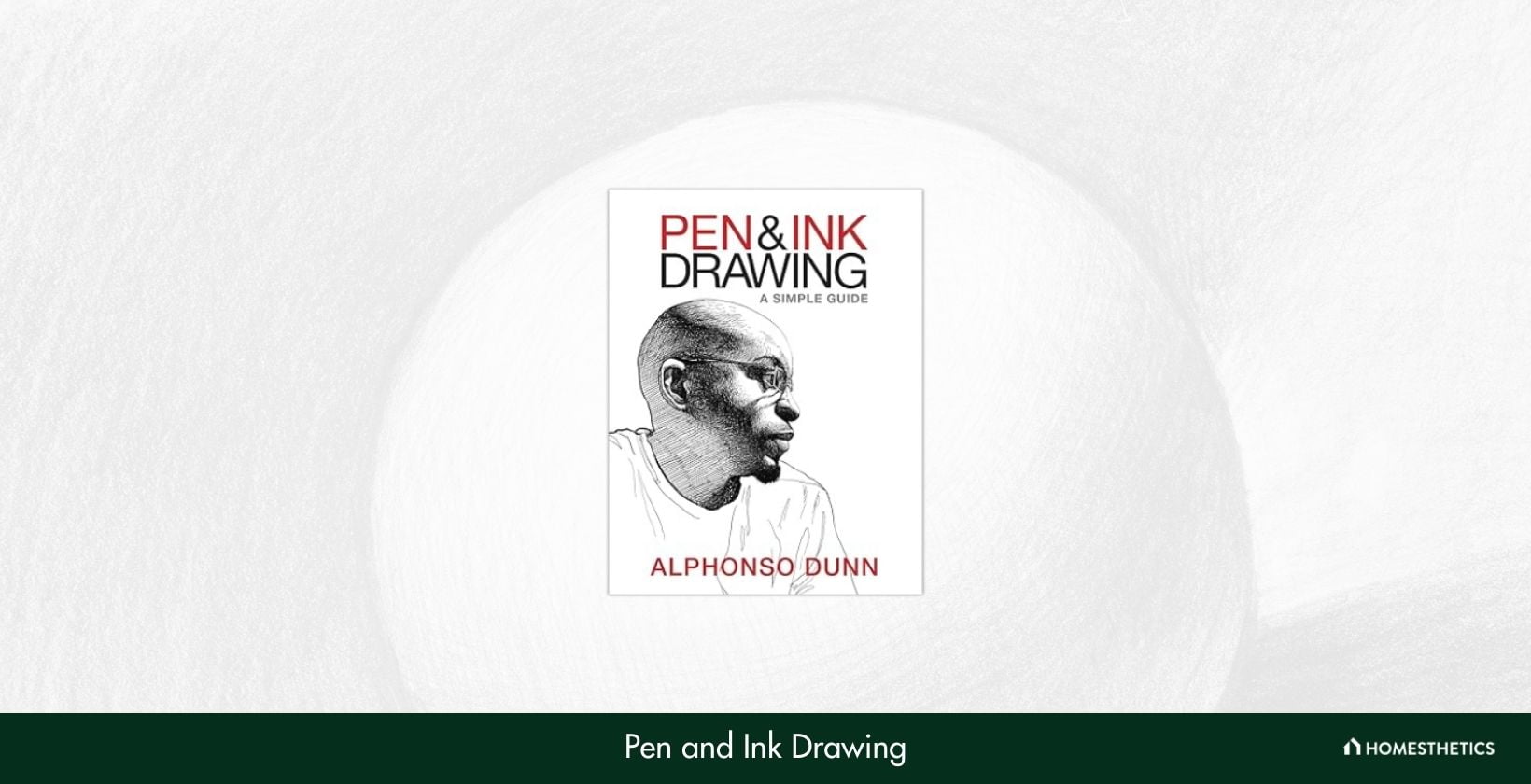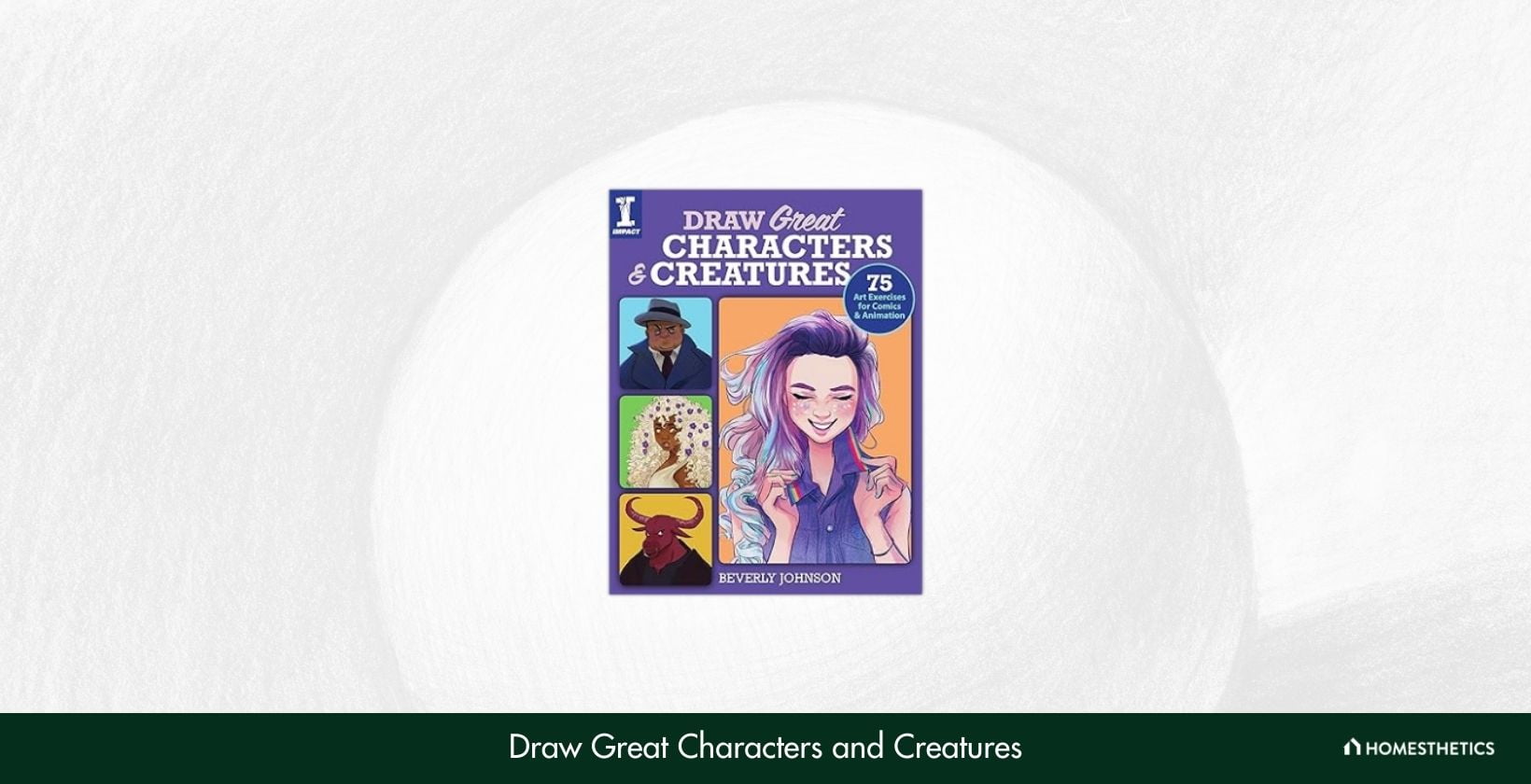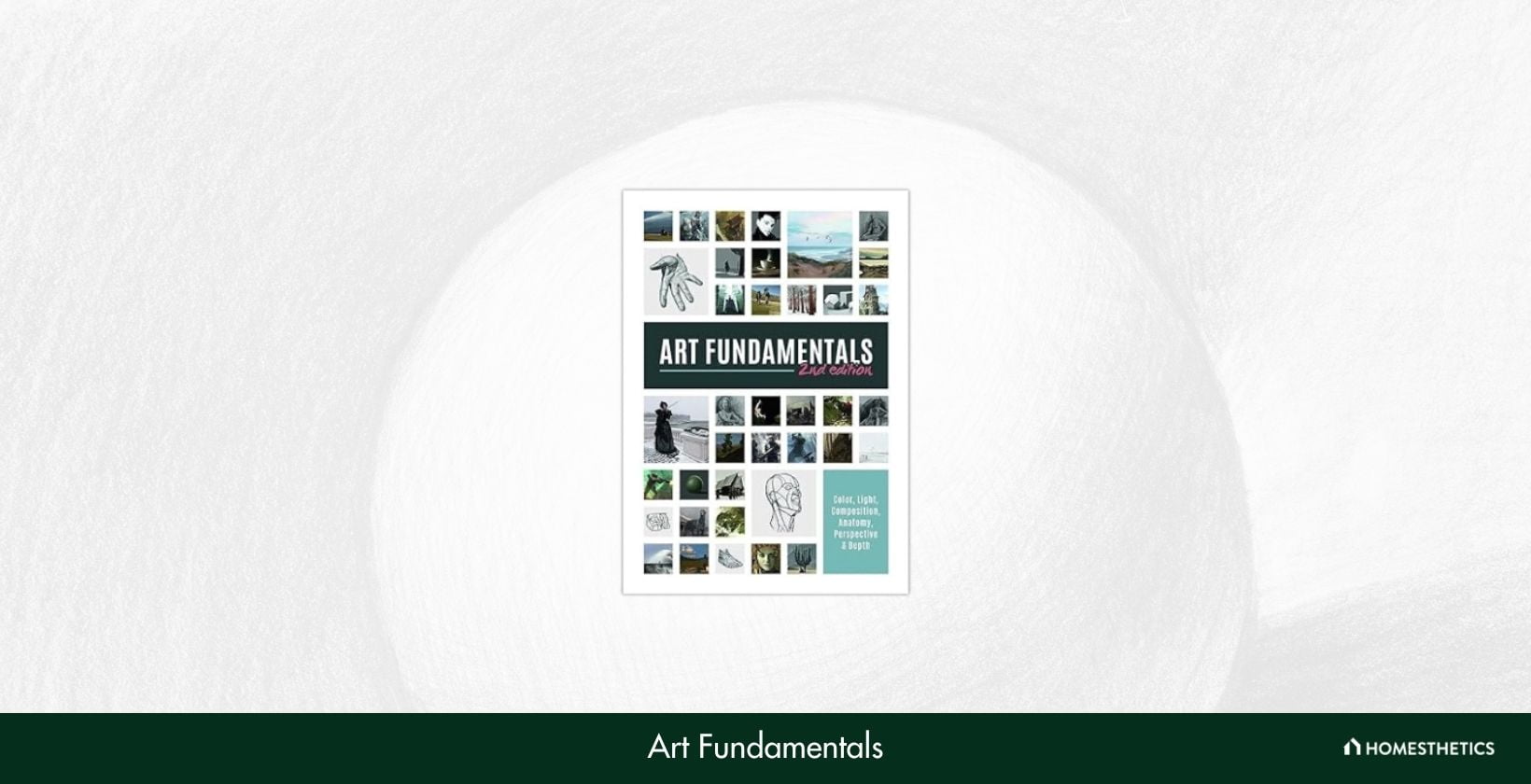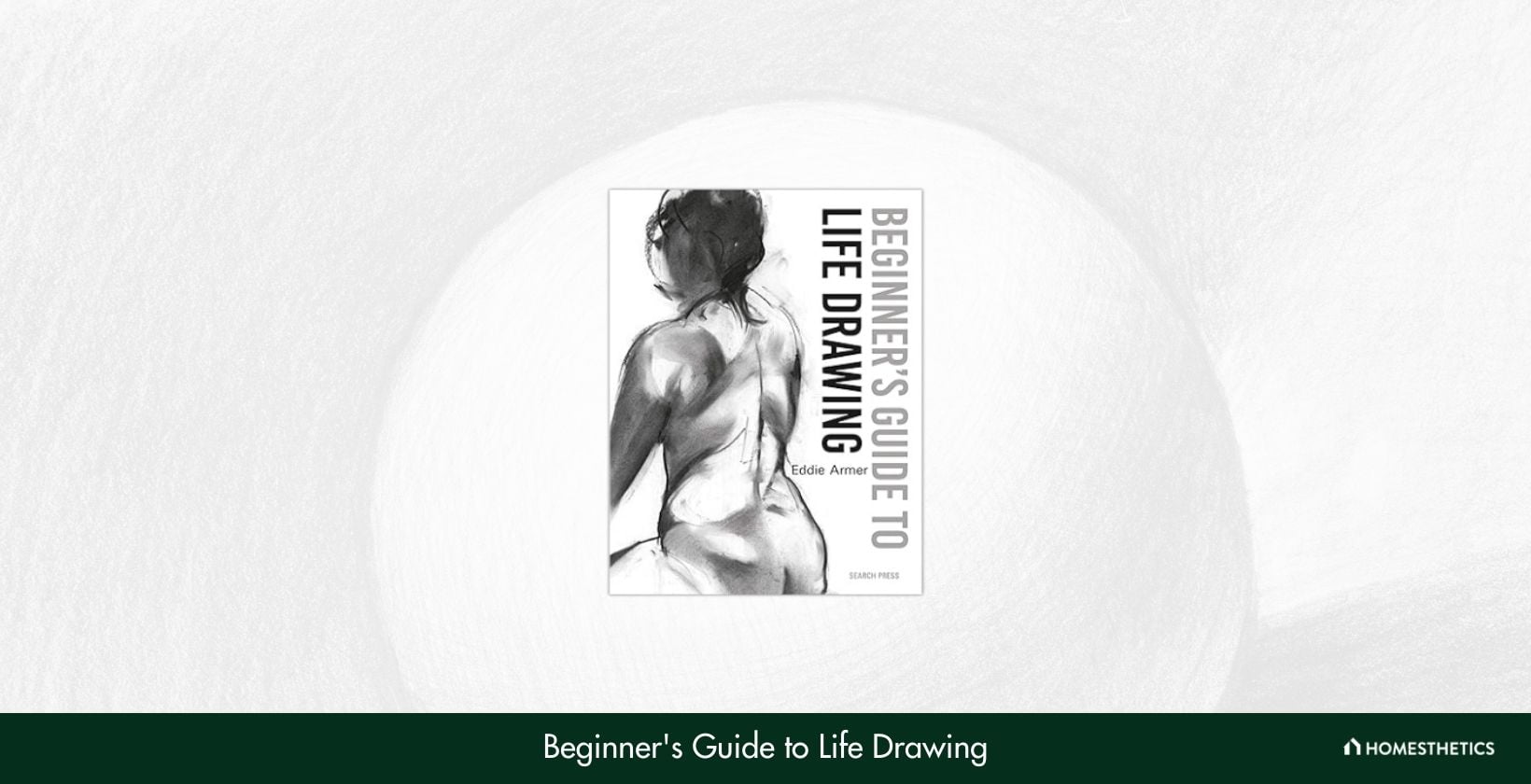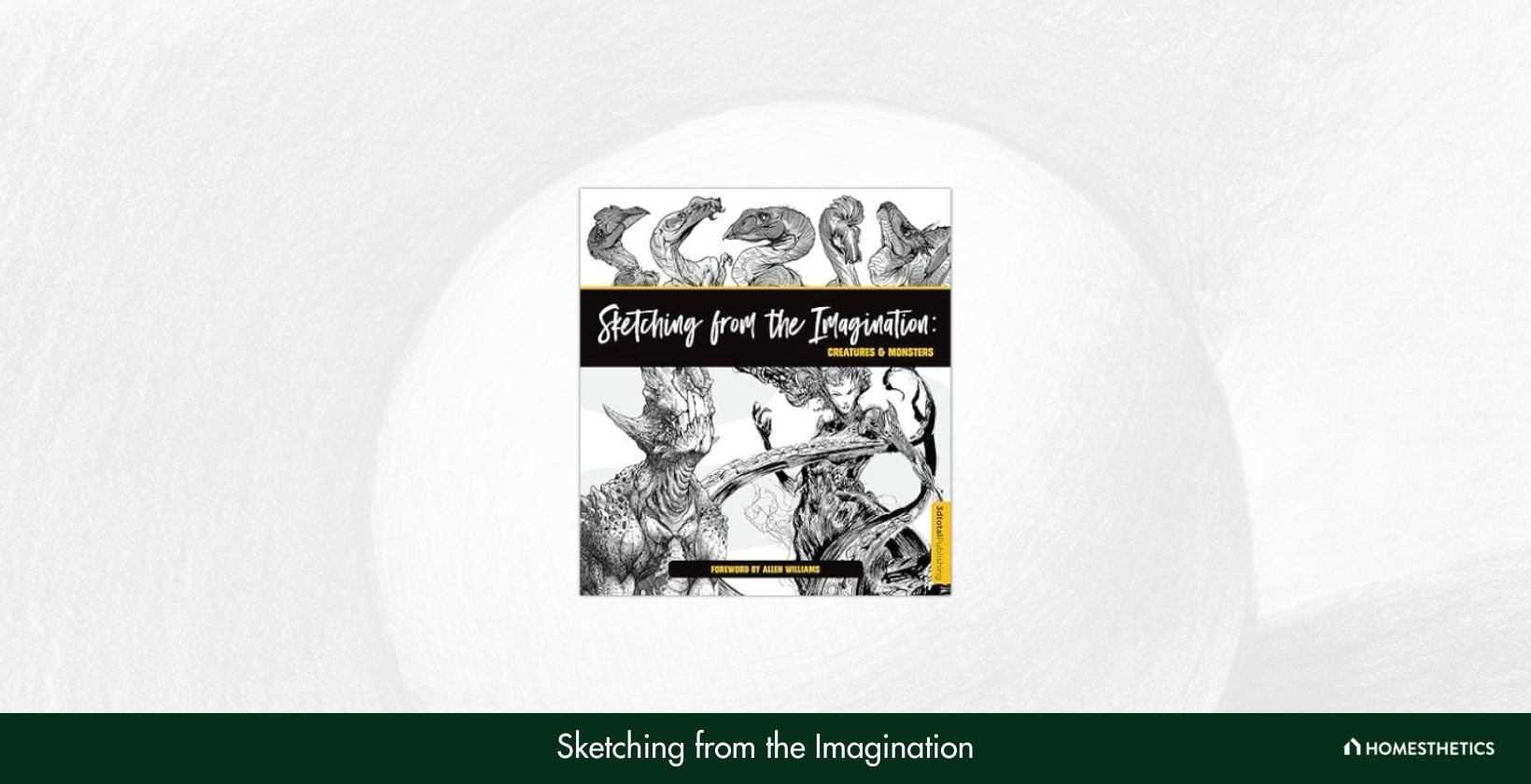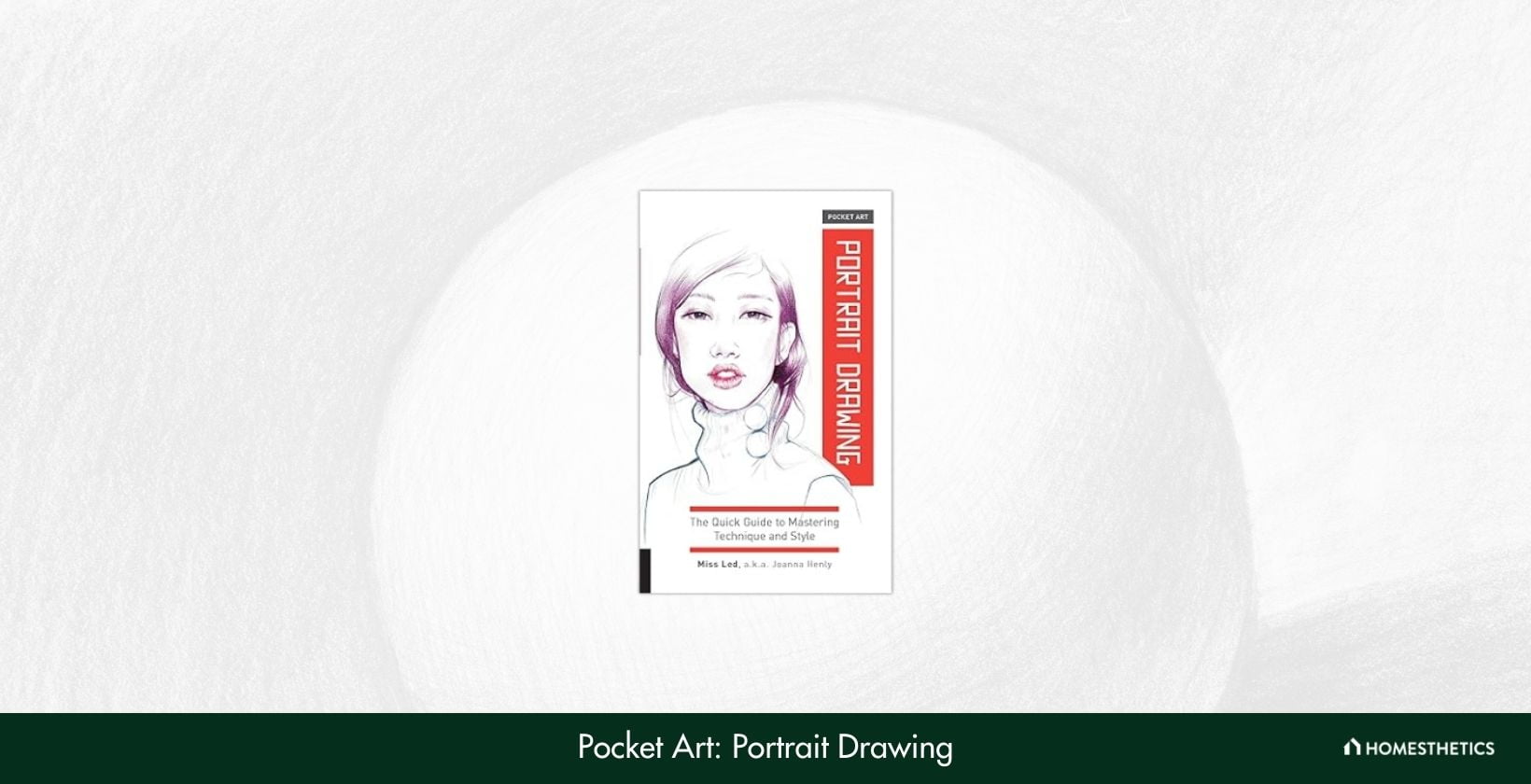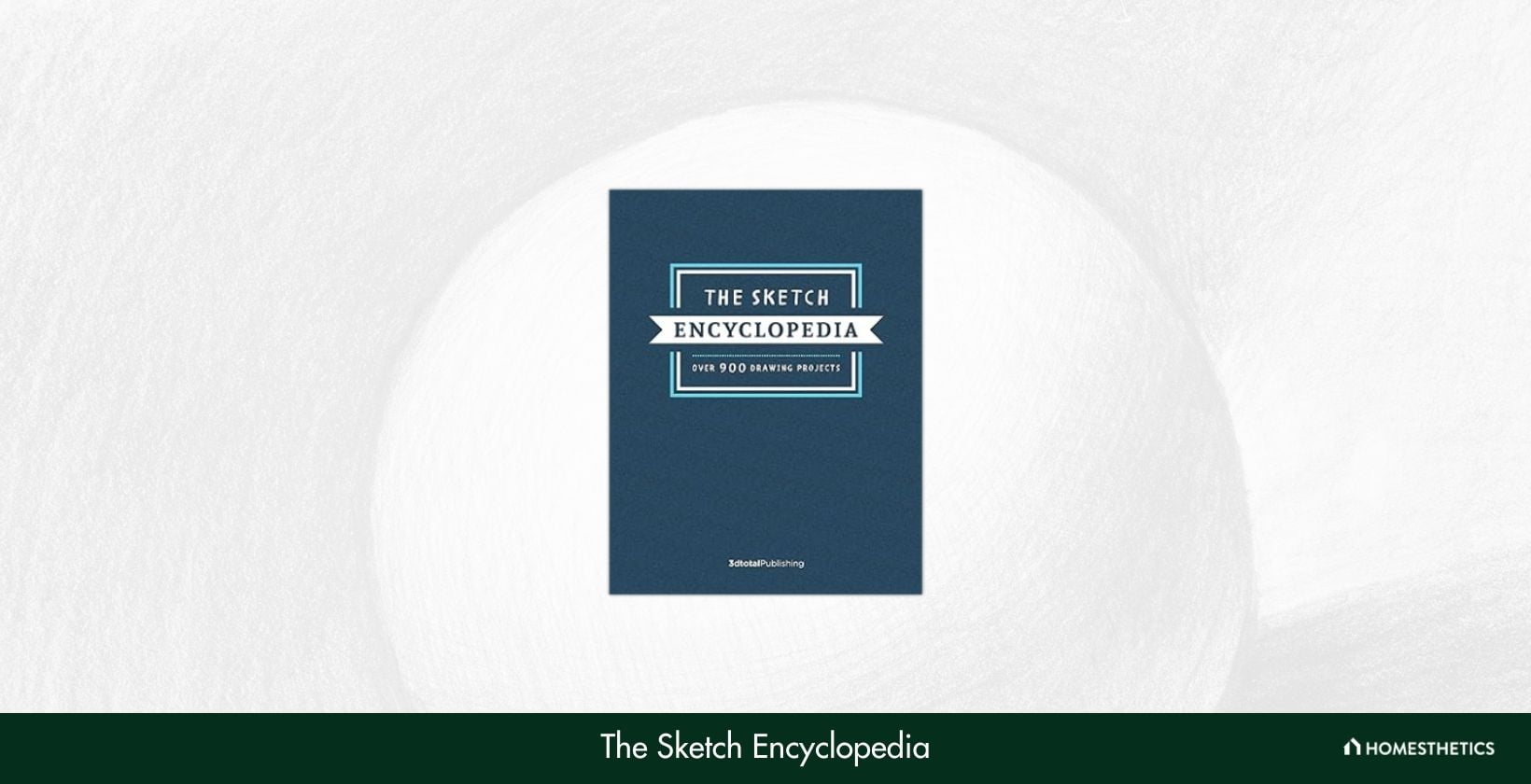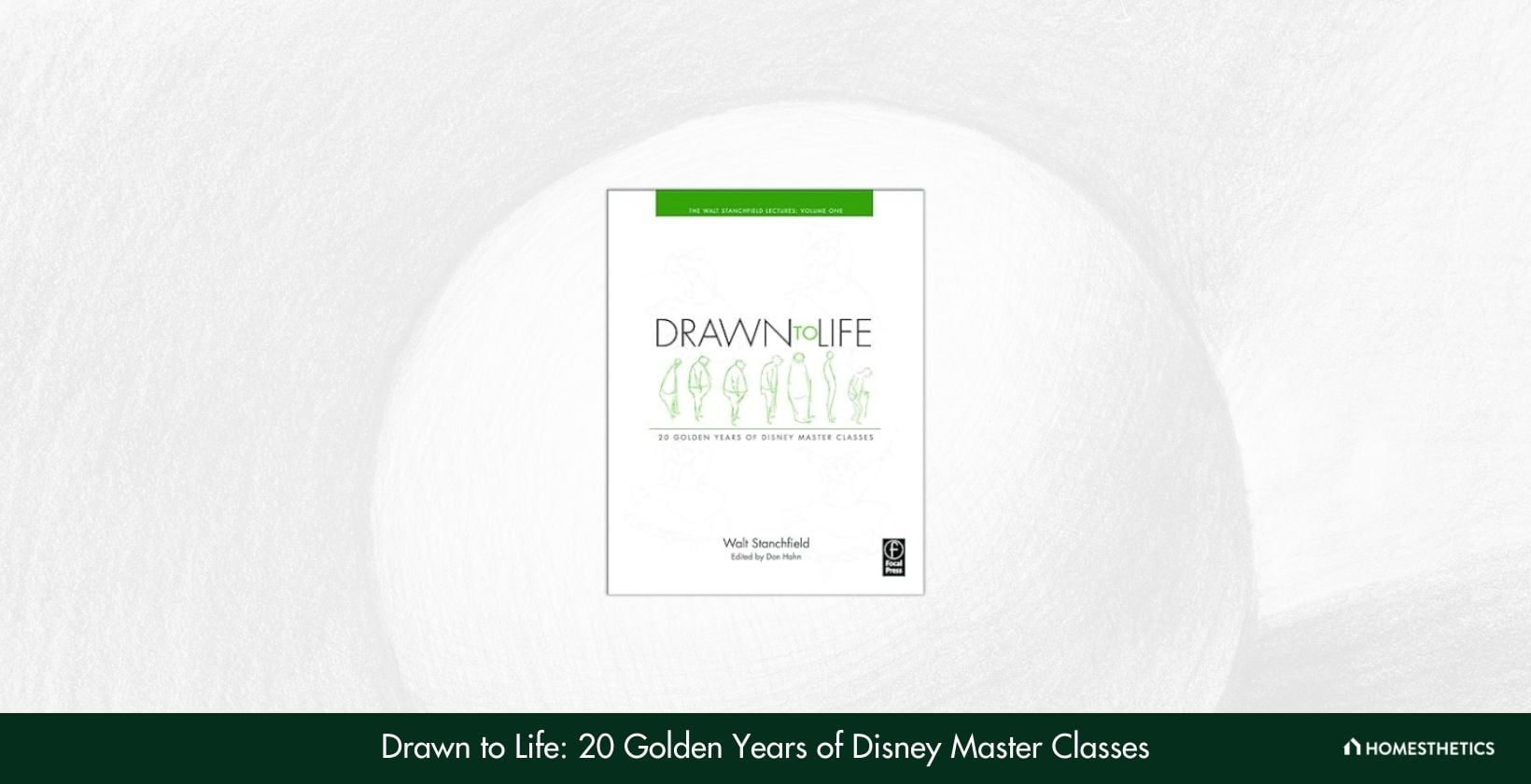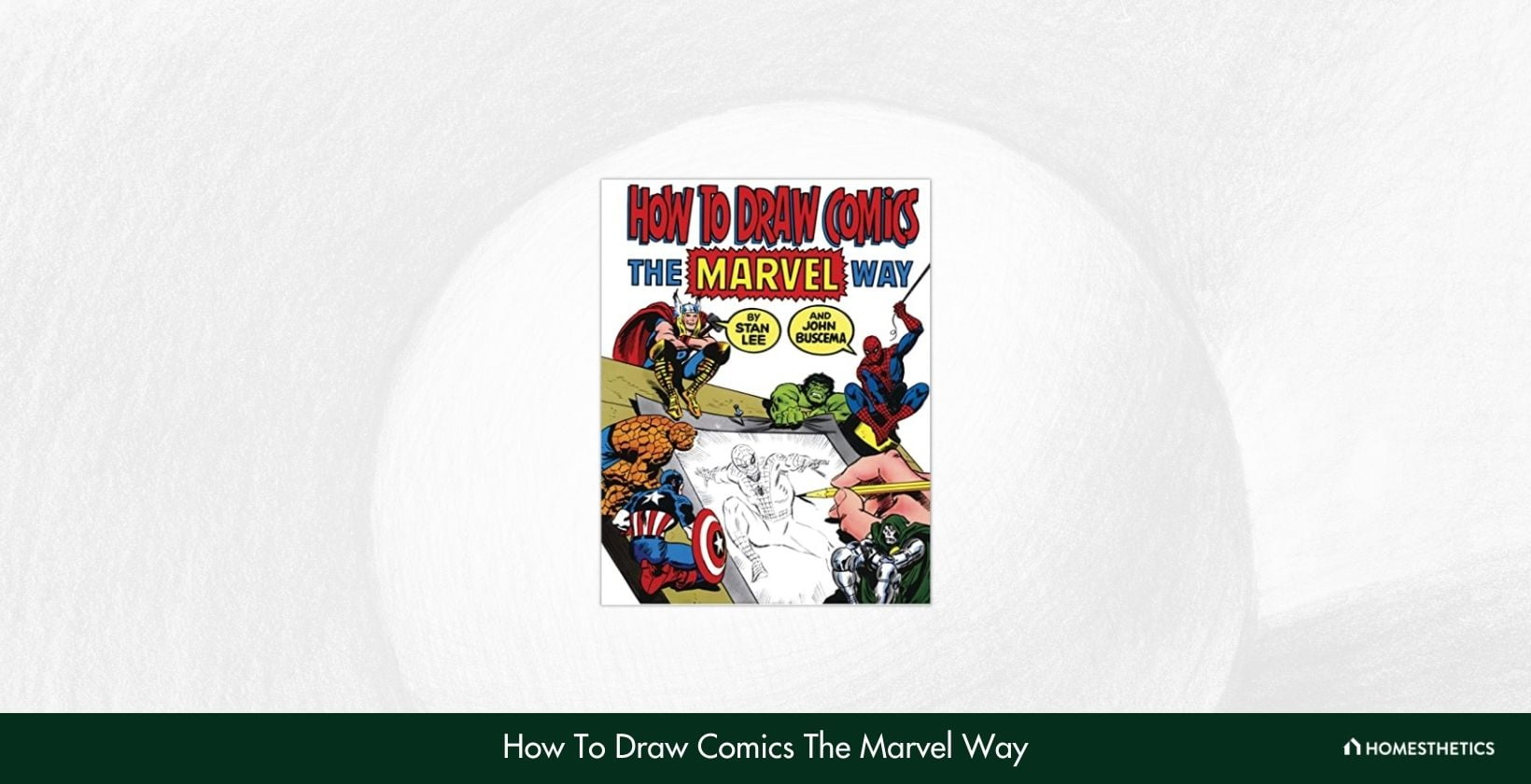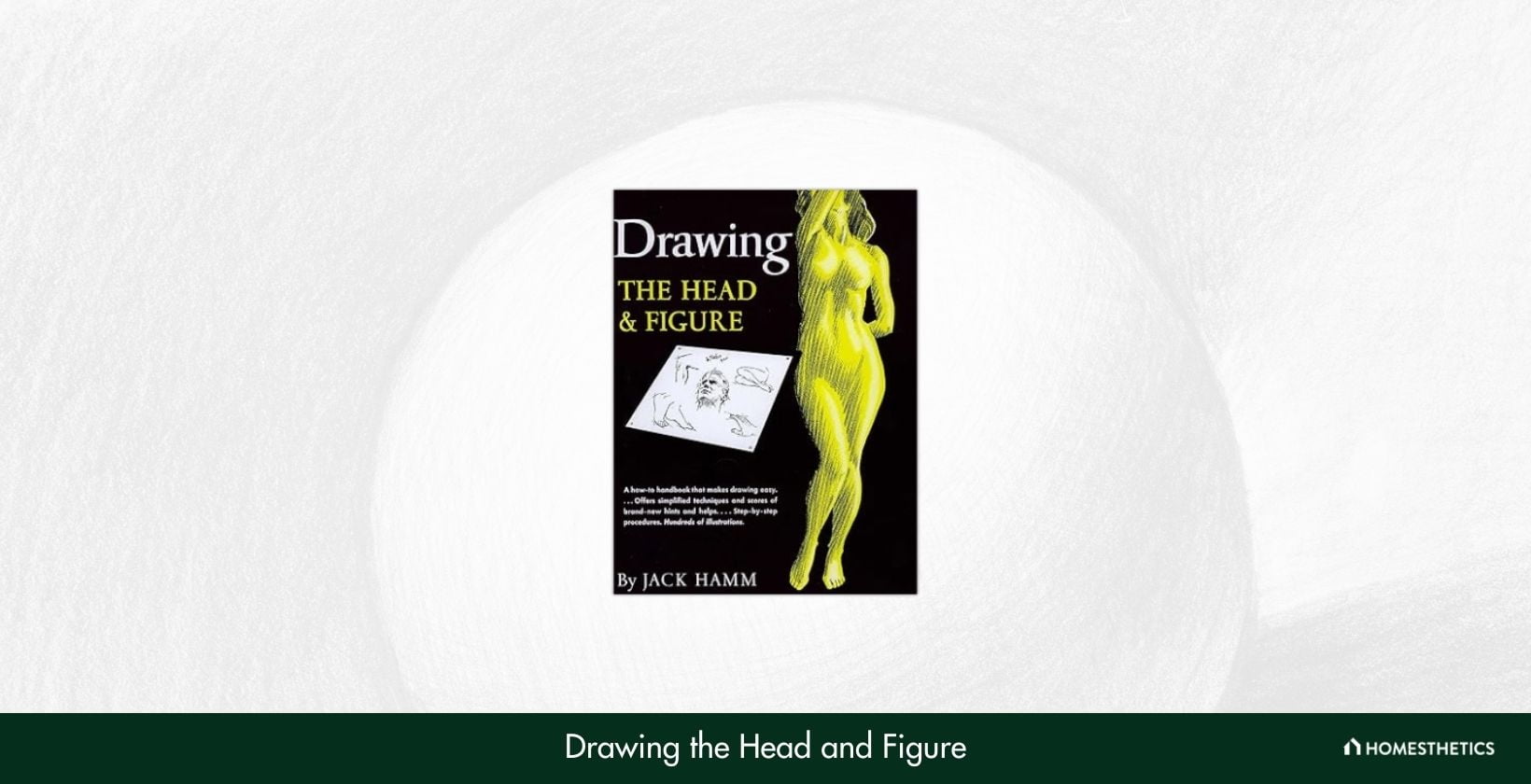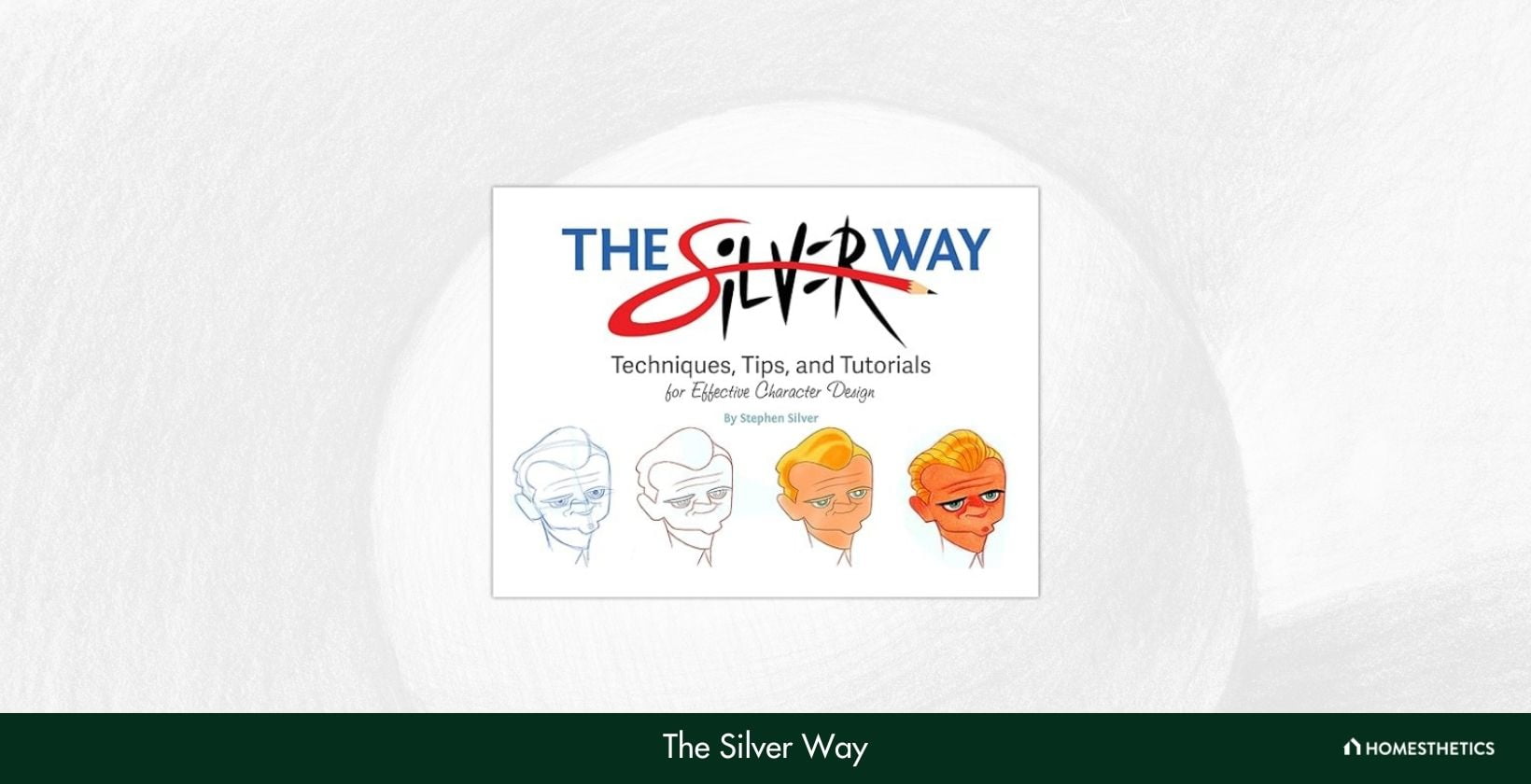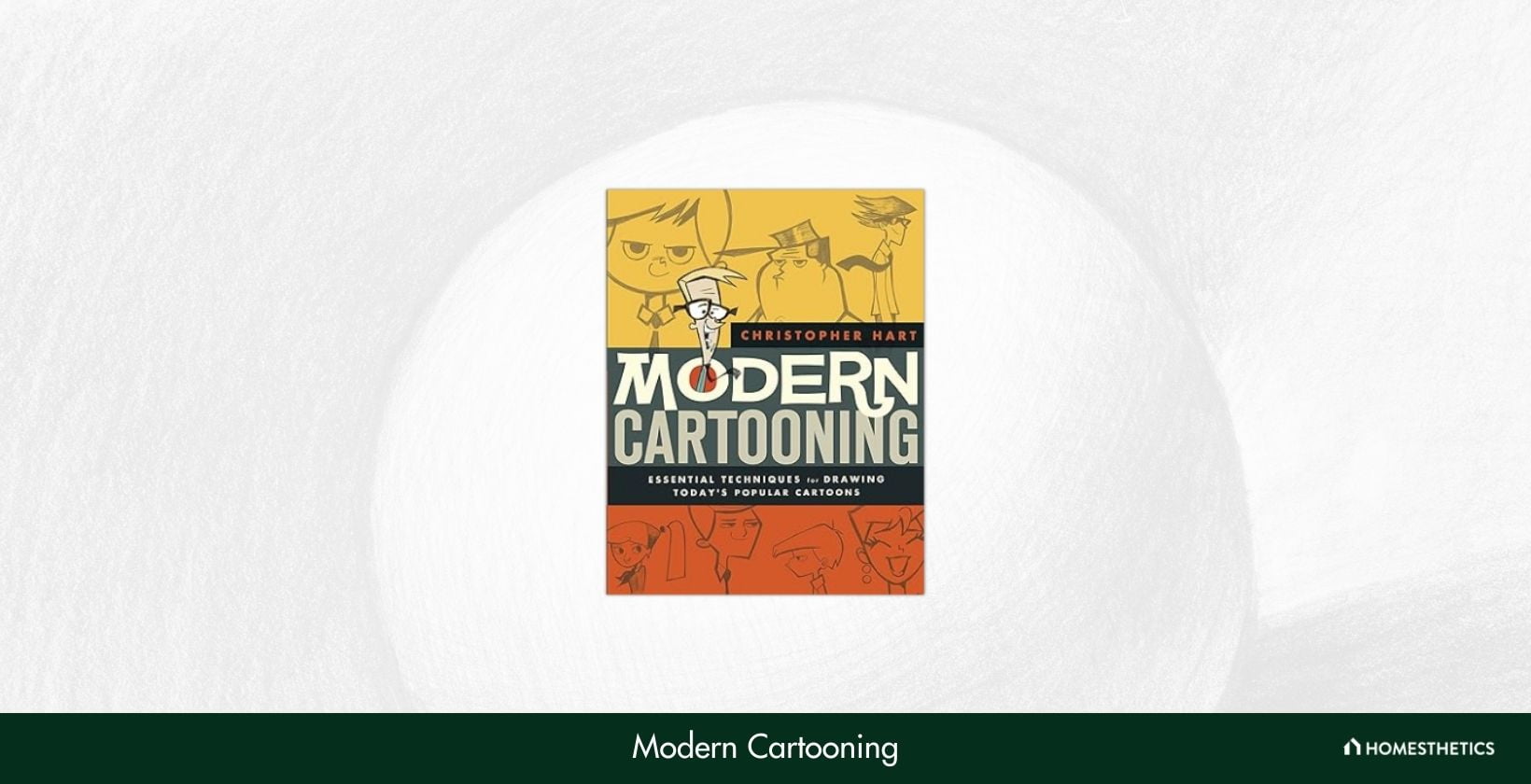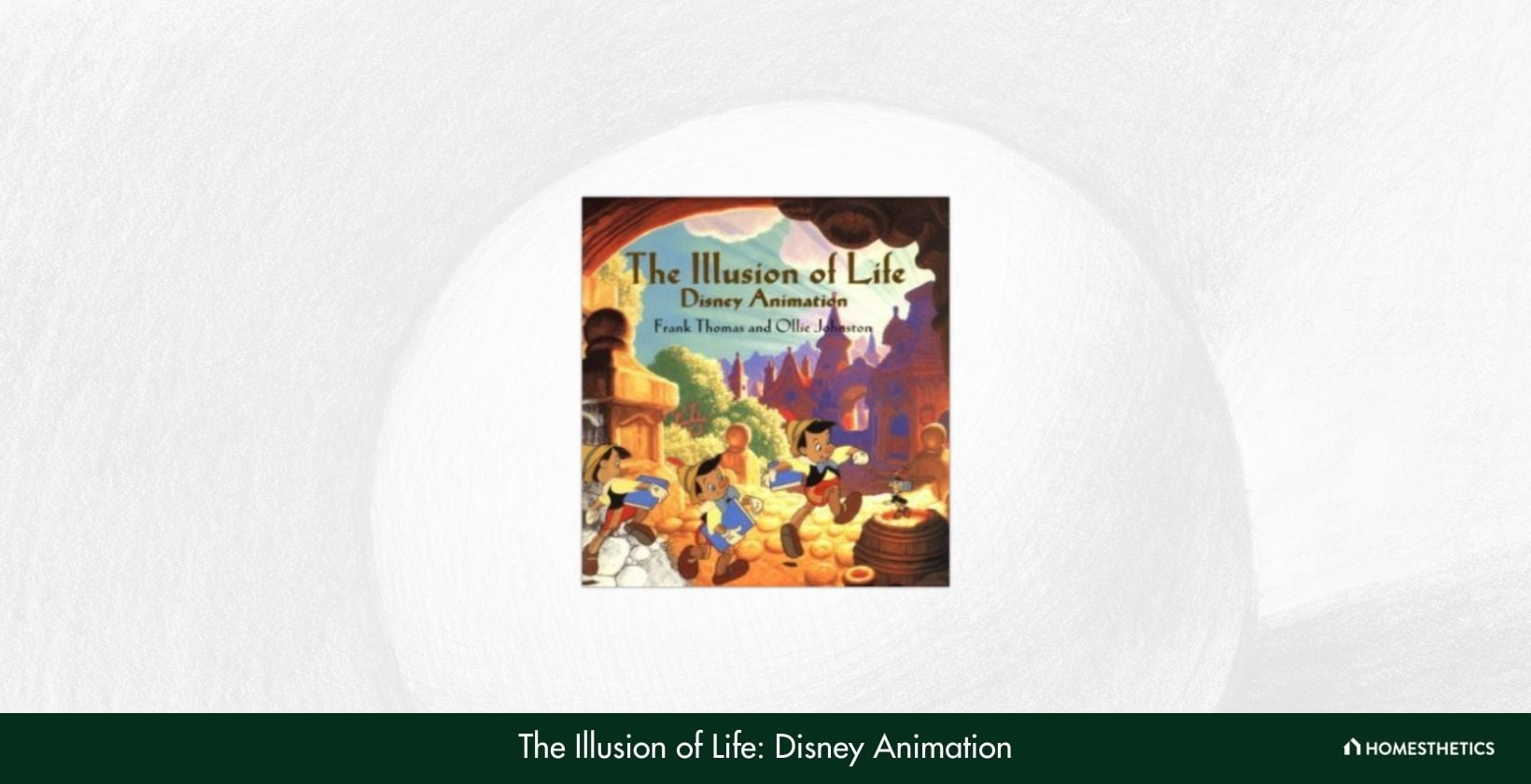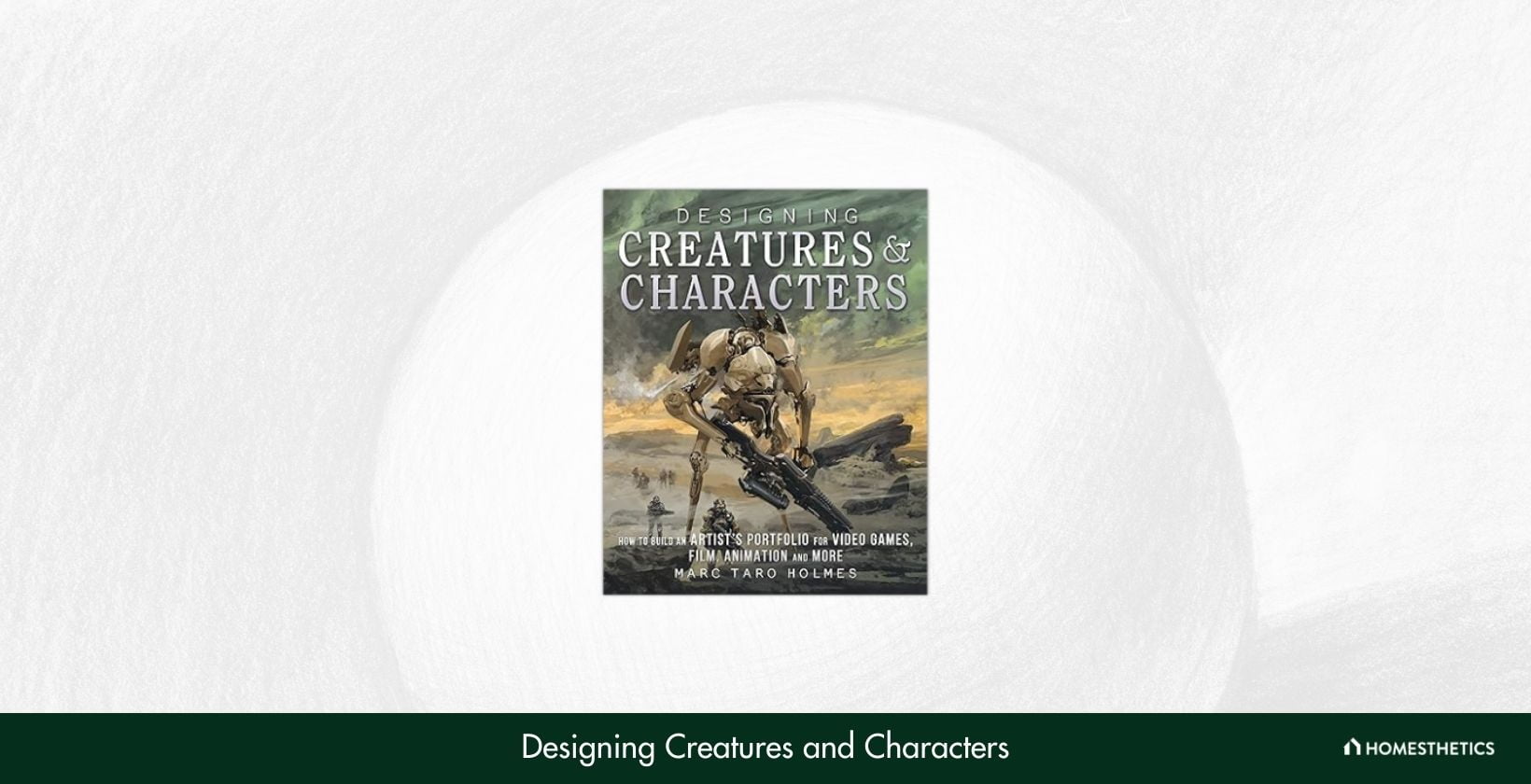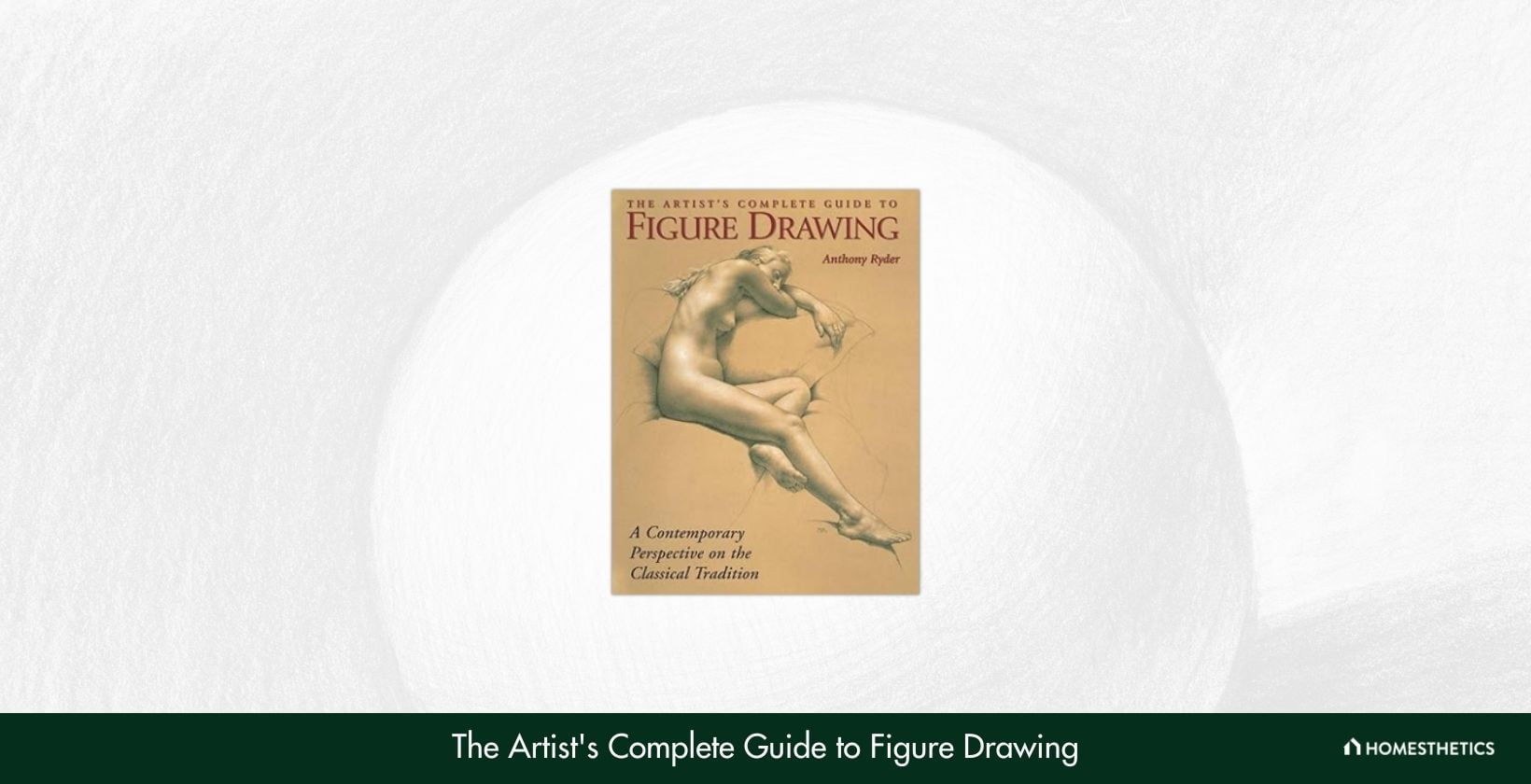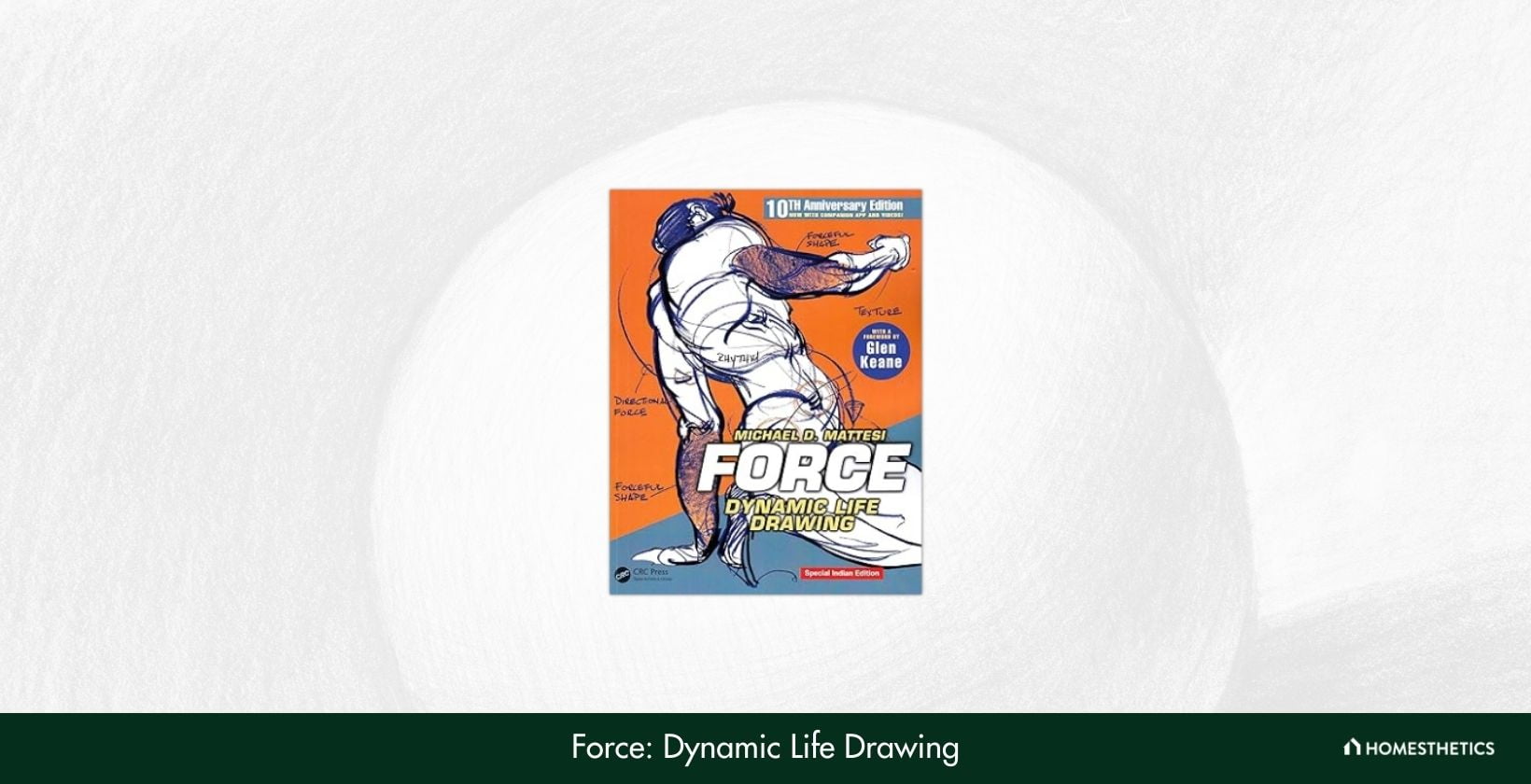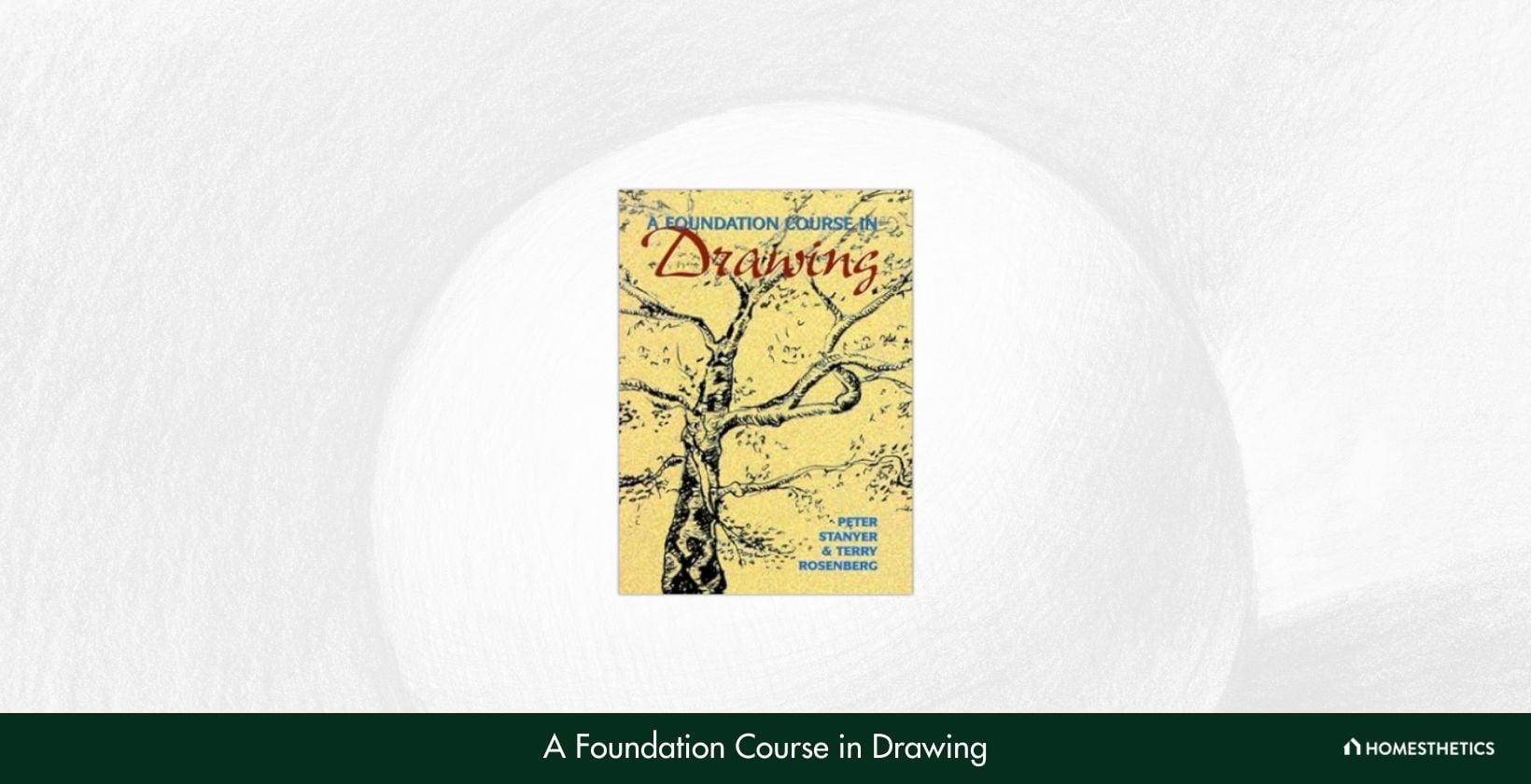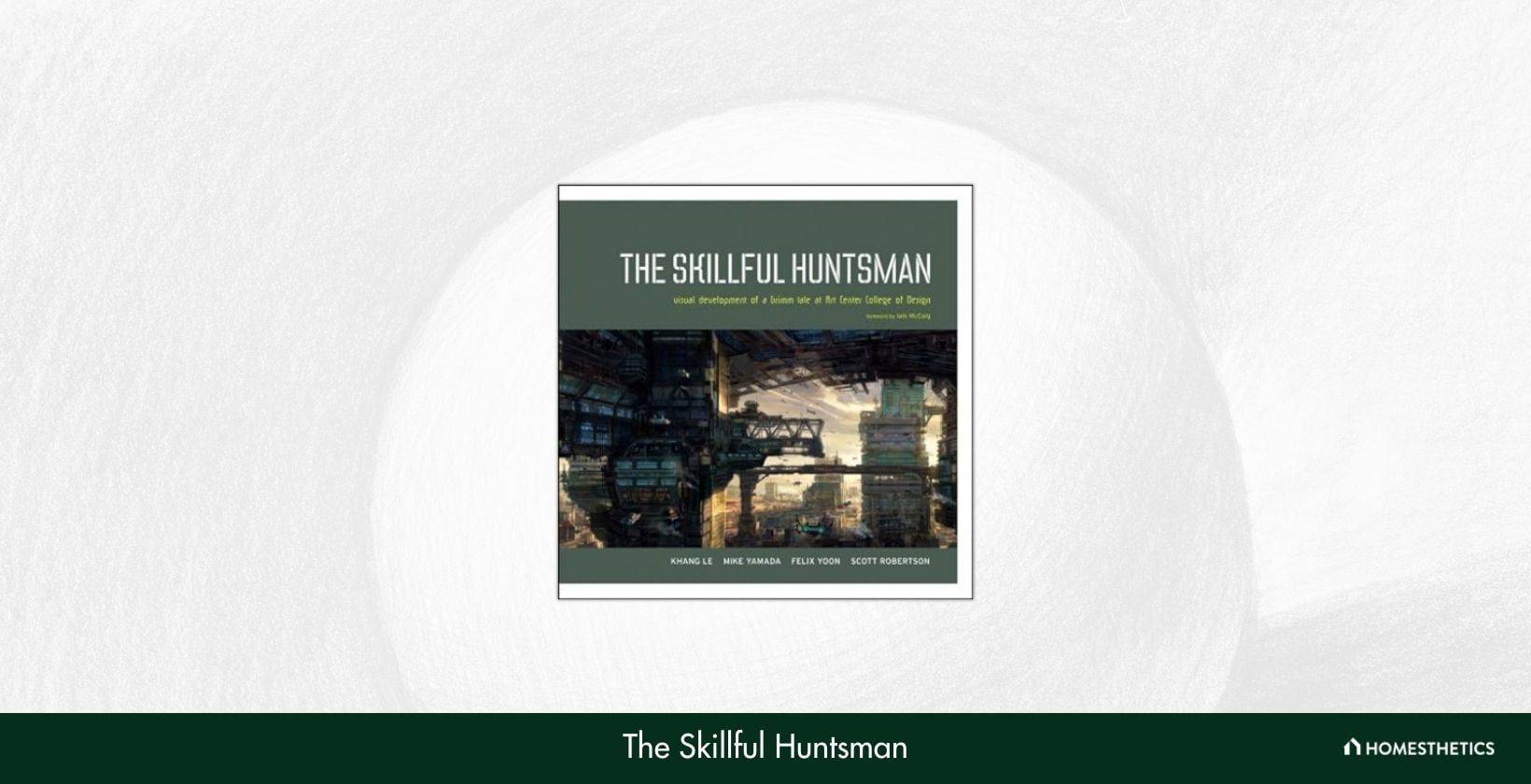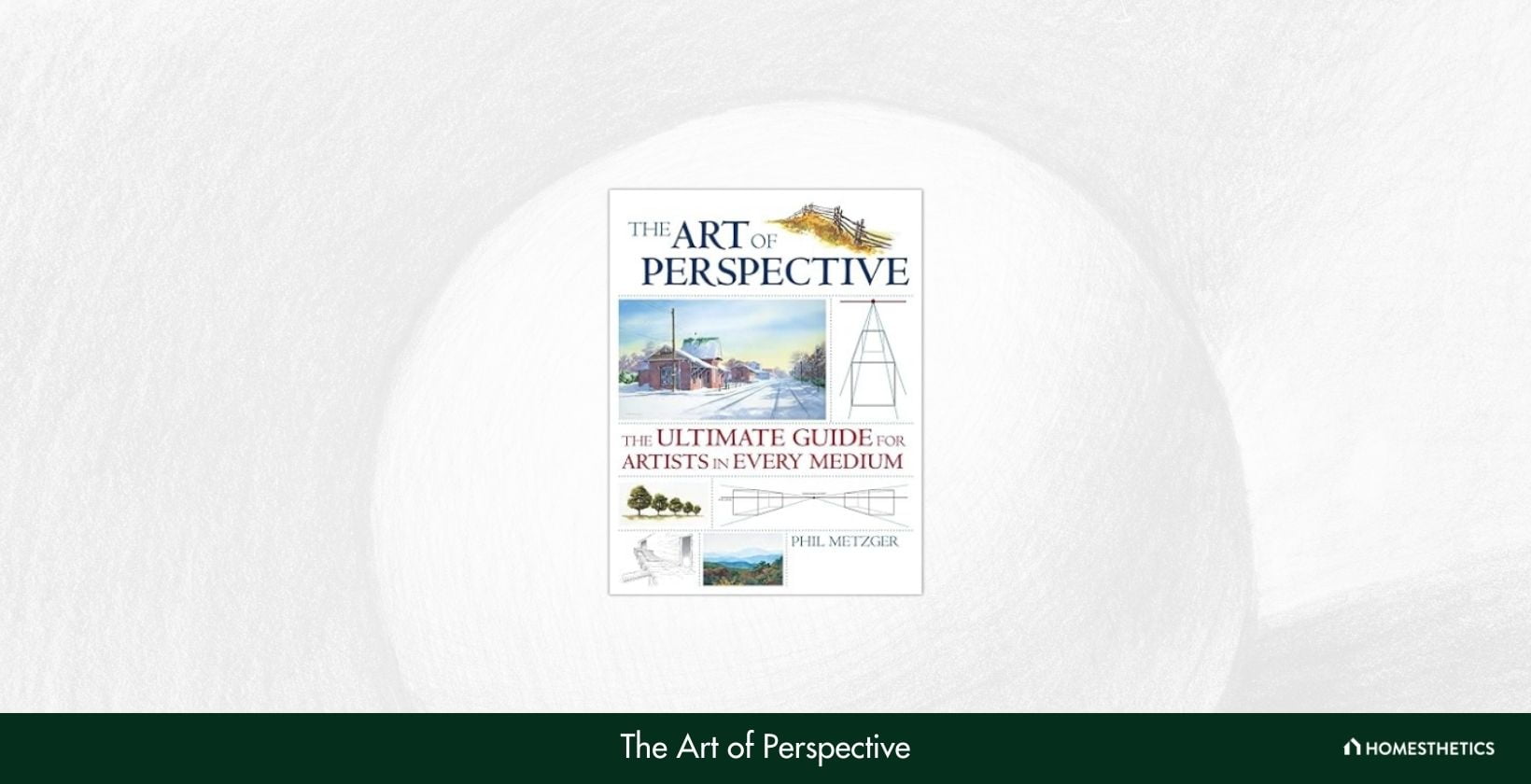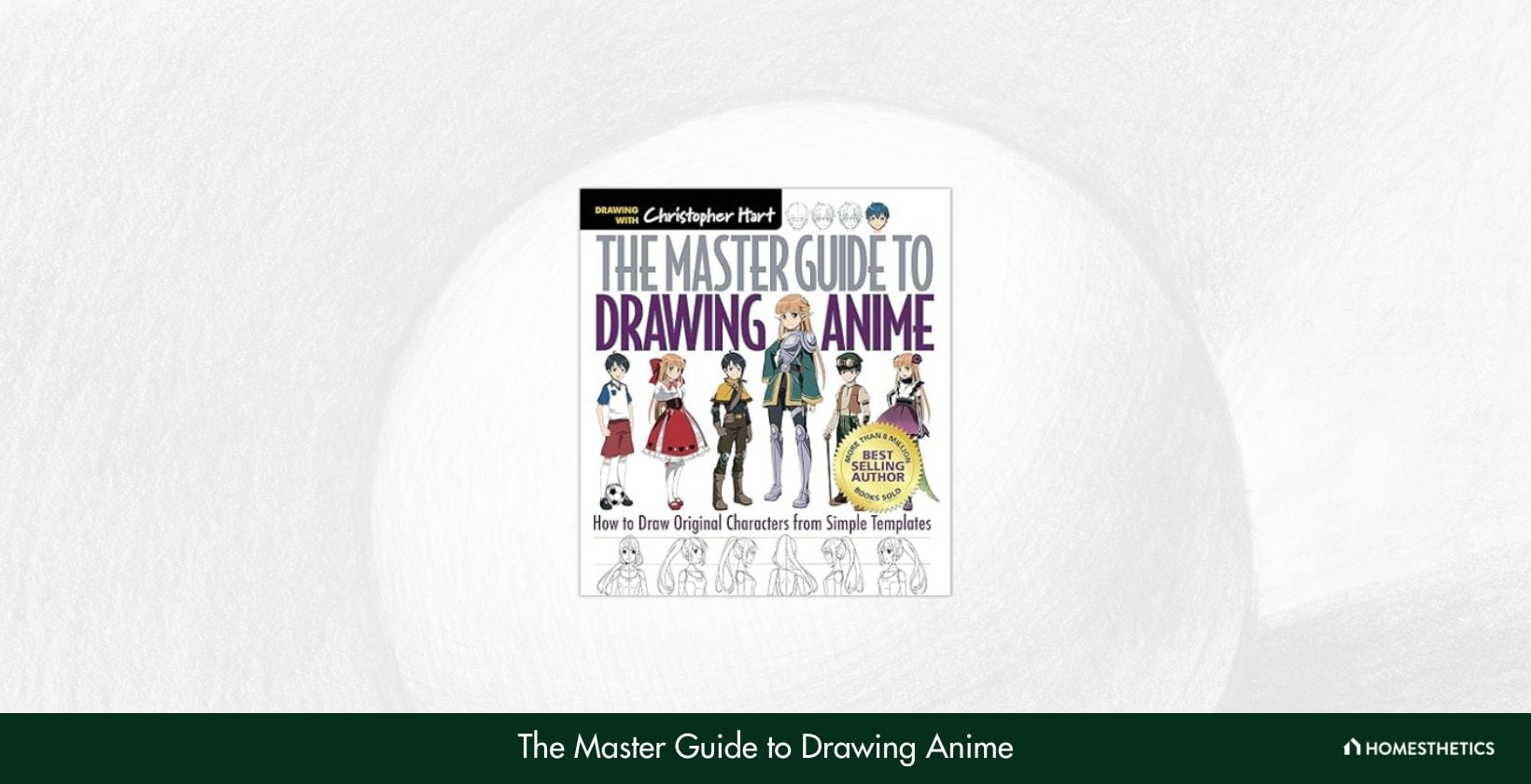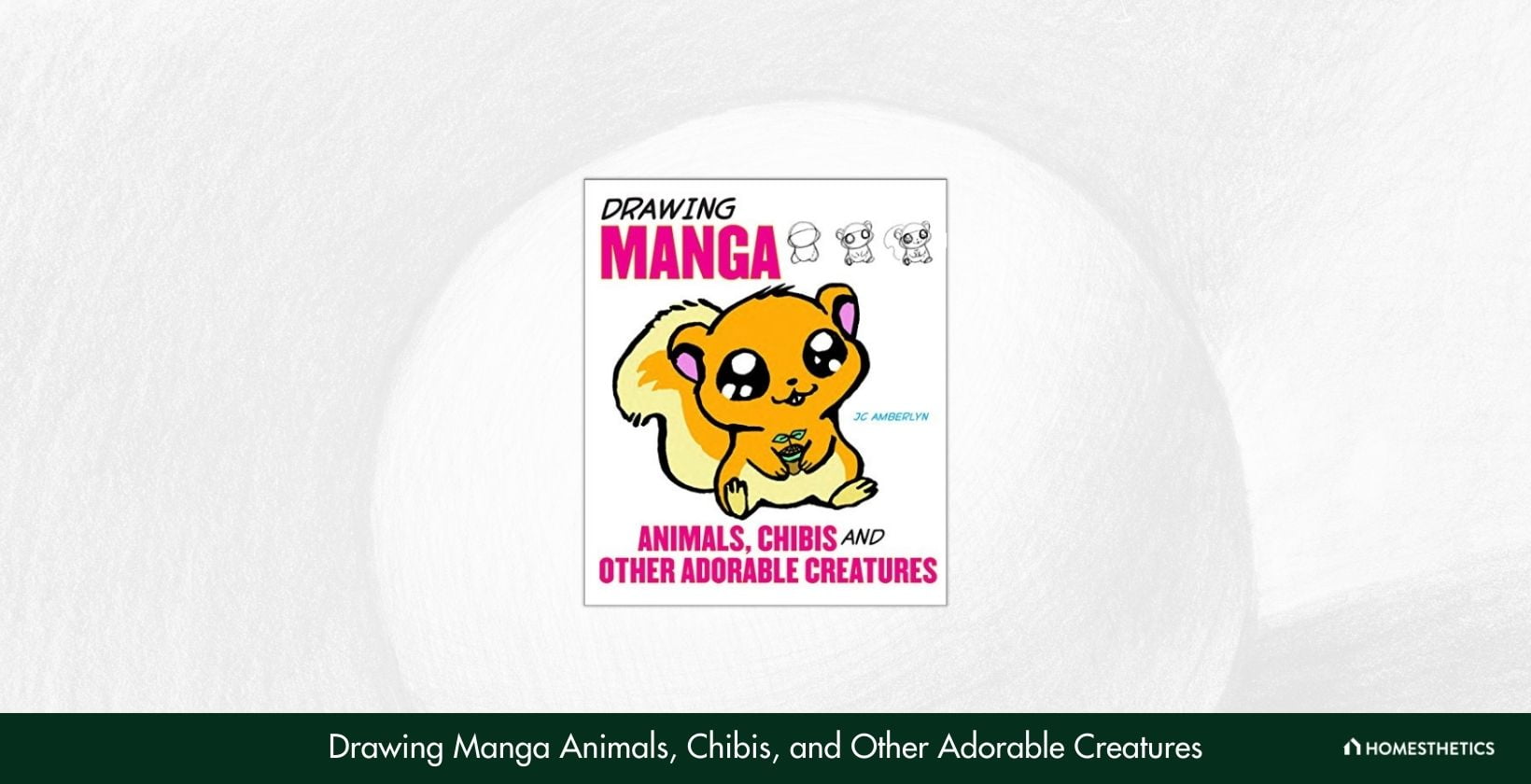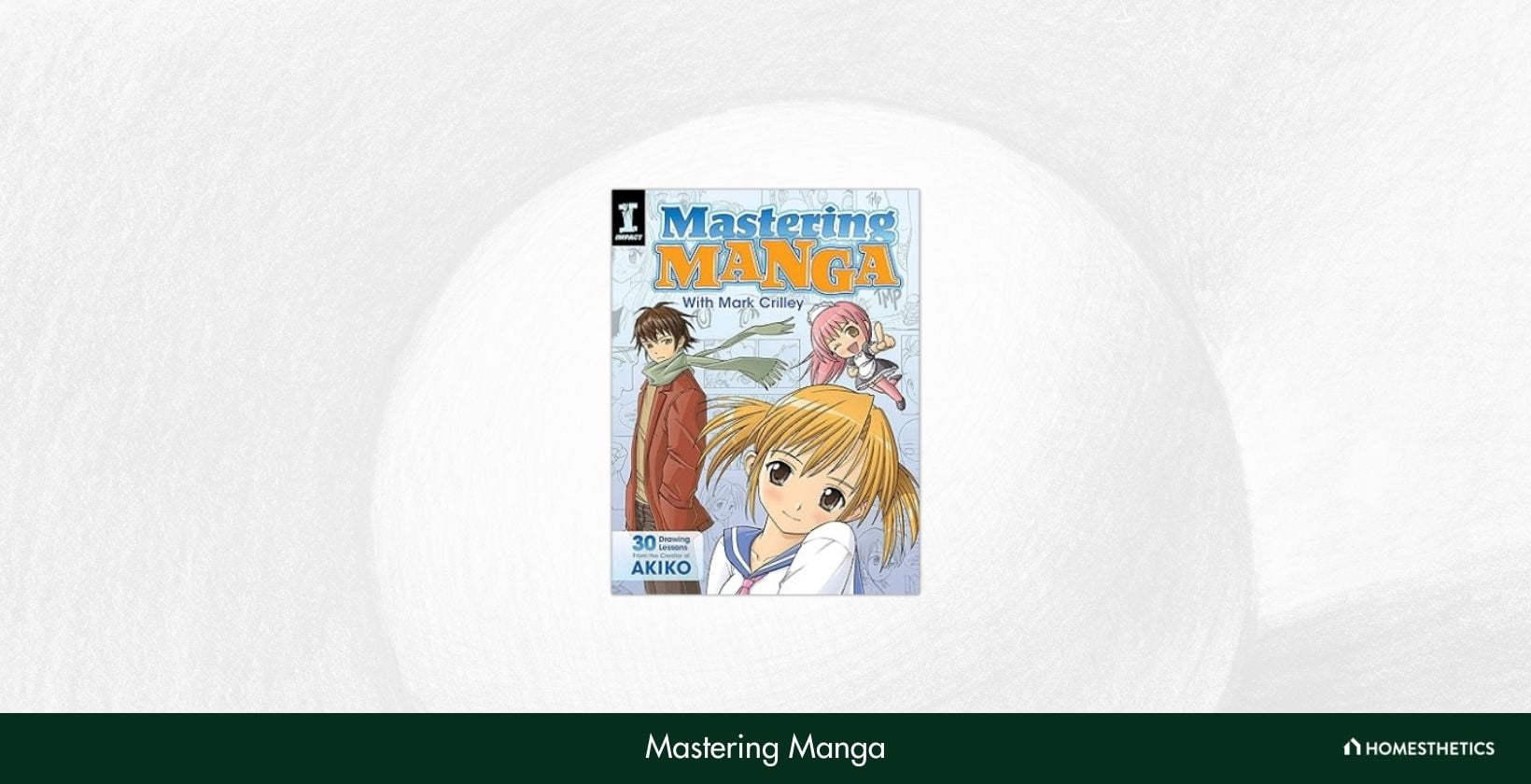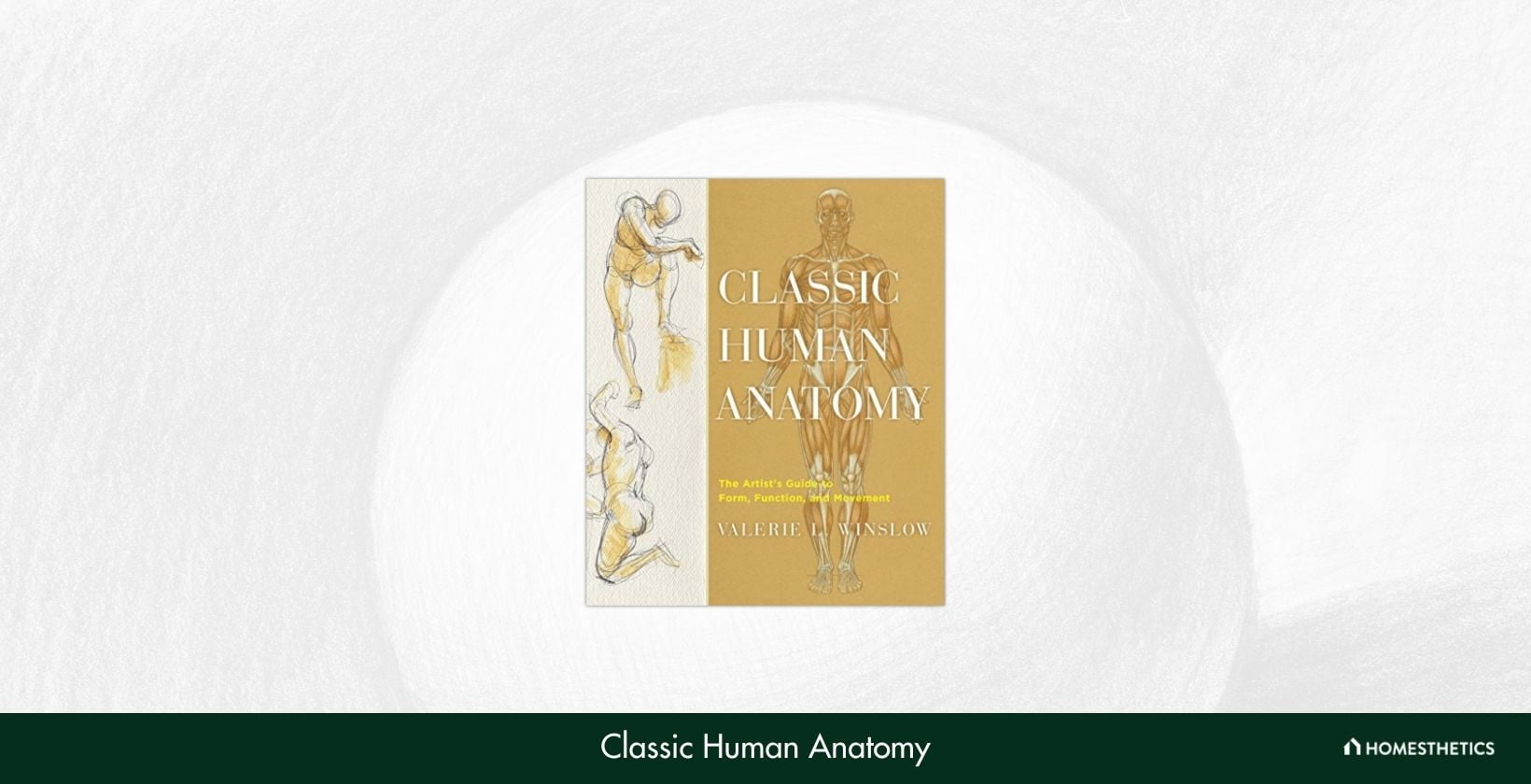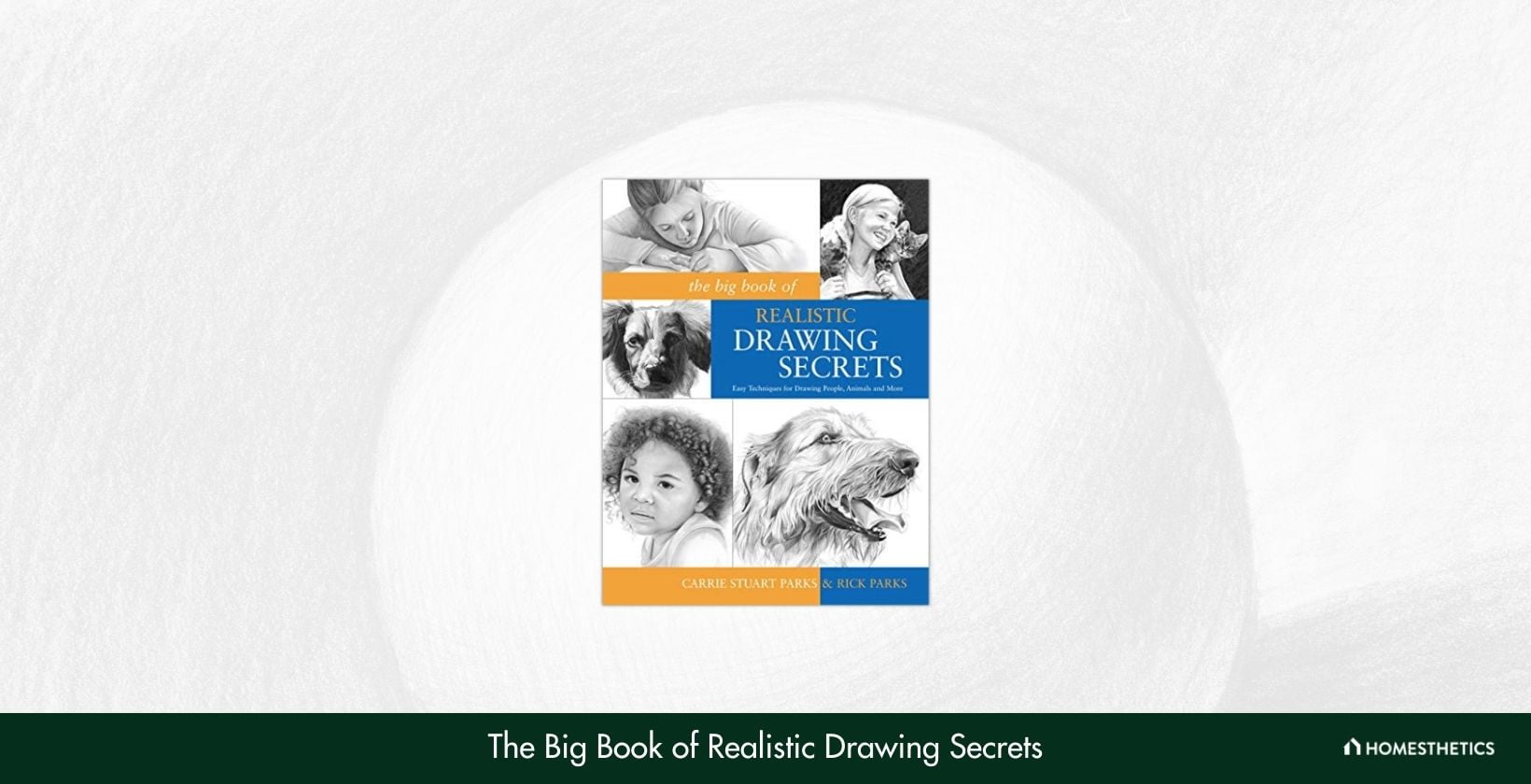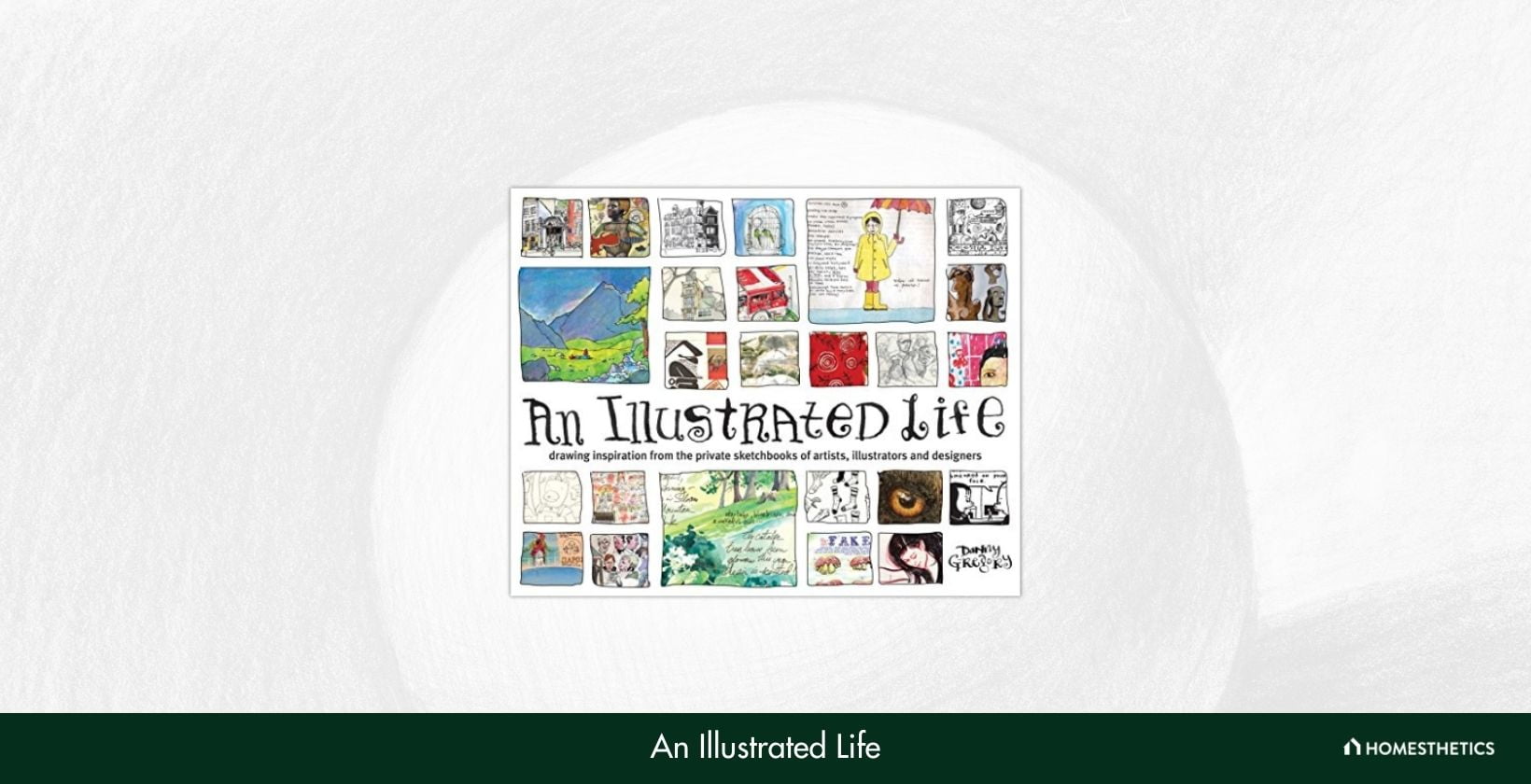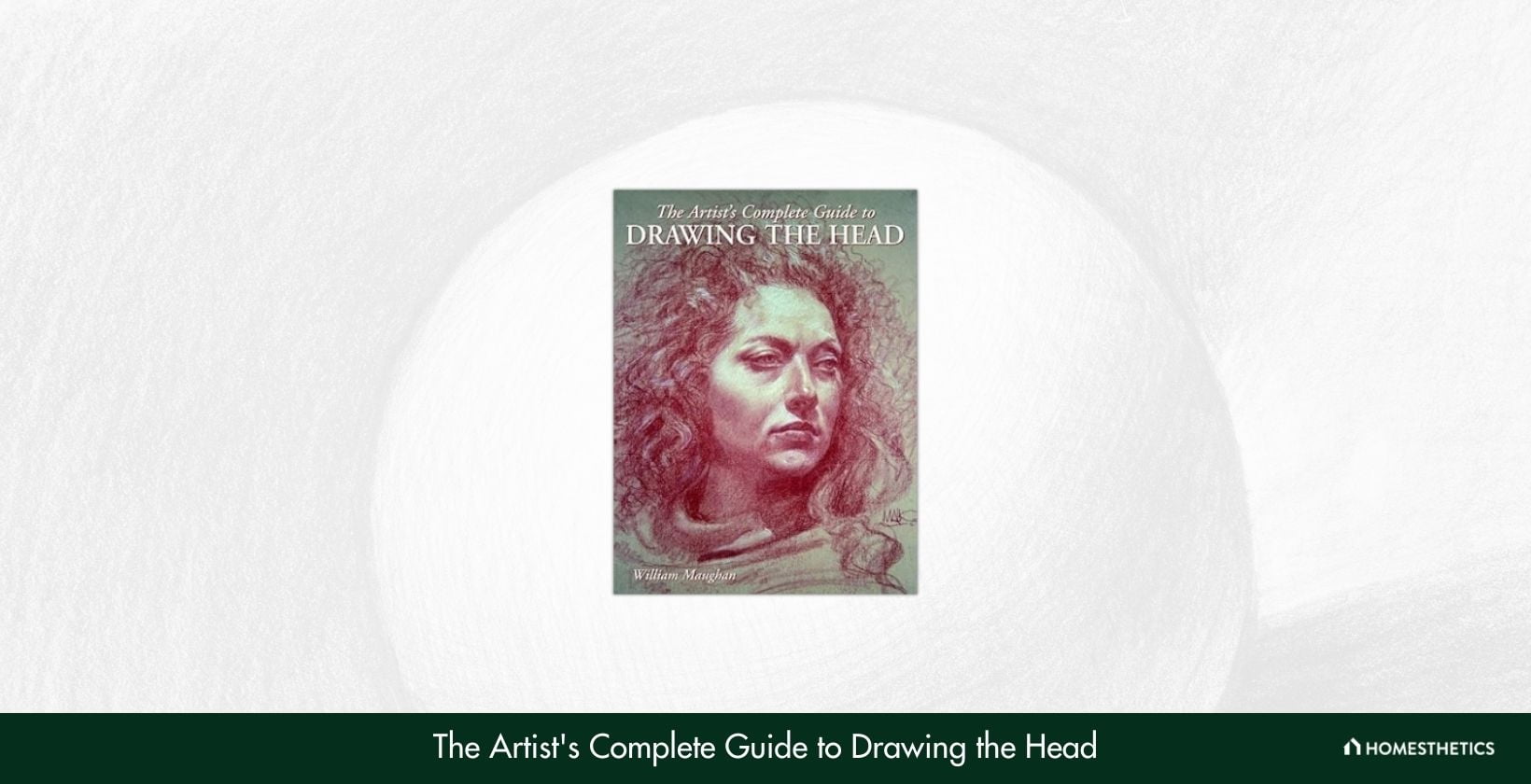Drawing is much more than just putting pencil to paper and sketching what's in front of you.
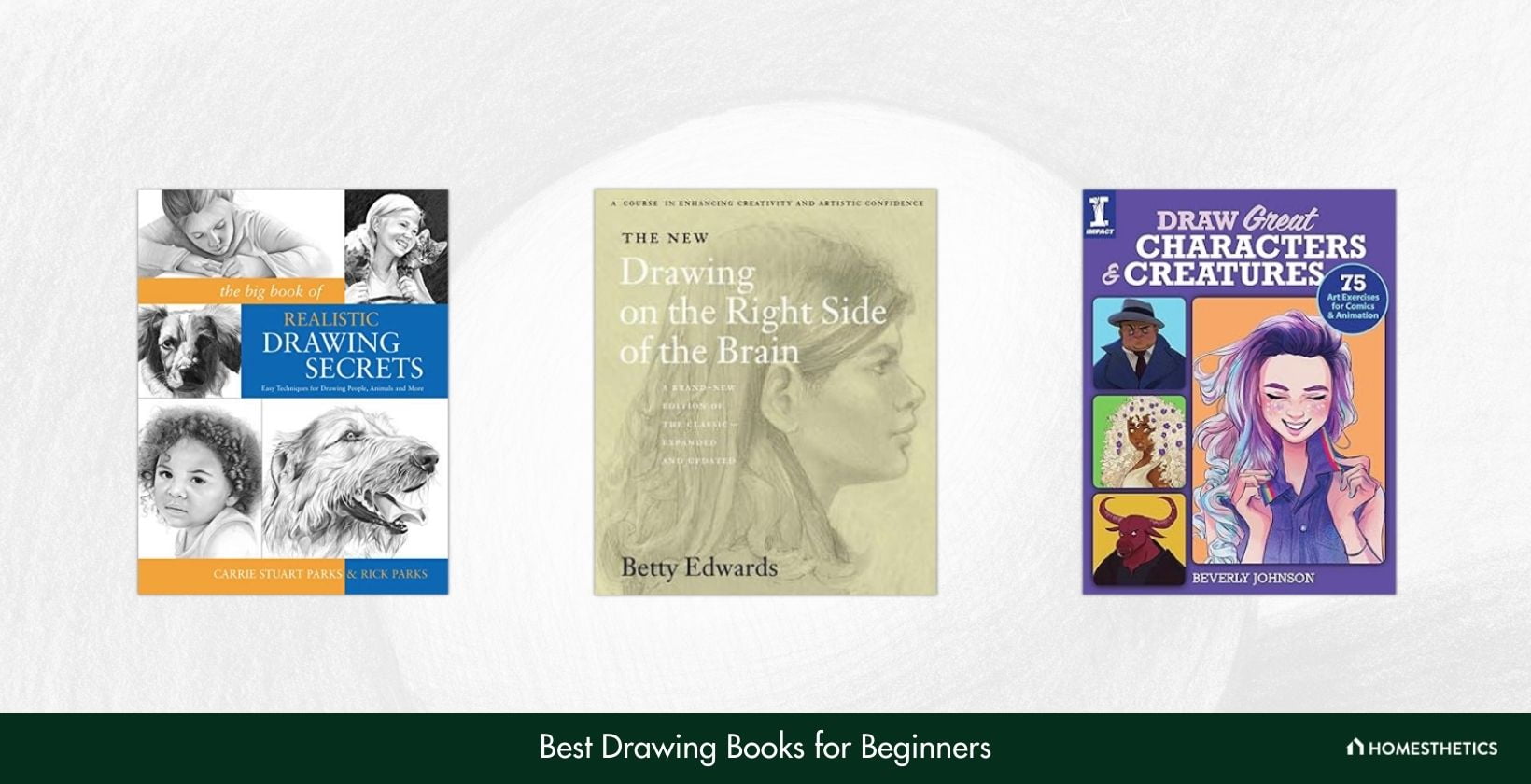
Professional artists will tell you that it's a medium for exploring human emotions and evoking real-life feelings in a 2D medium. So, you can understand the challenge that artists face and realize now why famous paintings sell for millions.
If you're a budding artist looking to make a name in the world of art, it would be best to read a few books about drawing concepts and techniques. To help you, we have narrowed down the 50 best drawing books for beginners that explore various ways of bringing art forms to life.
Best Drawing Books for Beginners
Here's the list of the 50 best drawing books for beginners, a comprehensive collection that will inspire and guide you on your artistic journey.
1. Keys To Drawing - Best for Beginners
To become proficient in different drawing techniques, it's important to practice, and that's where Bert Dodson's book comes in handy. It focuses on simple techniques so that you can create your own style.
All the techniques are easy to follow and suitable for new artists to help them apply clean strokes by controlling the movement of their hands and elbows. You'll find that the realistic drawing exercises have been divided into several lessons for quick understanding.
2. Drawing On The Right Side Of The Brain - Best for Realistic Drawing
This book acts as a portal to the world of professional artists, especially for budding painters who need to practice realistic drawing exercises. Published in 1979, it’s a bestseller in the USA and has been translated into several languages.
The author, Betty Edwards, taught at California State University and has provided essential tips and tricks to be a successful painter. There's even a section about using the left and right sides of the brain to good effect.
3. Drawing For The Absolute Beginner - Best for Easy Learning
Every famous artist was once a beginner, but you will have a slight advantage because they didn't have the luxury of reading this book. Written by Mary and Mark Willenbrik, it will help improve your drawing skills in short, effective strokes.
All the methods in this book are pretty straightforward, while the narrative tone is simple. We came across several useful tips that will help you grasp basic art forms and styles with ease.
4. Drawing For The Absolute And Utter Beginner - Best for Nature & Portrait Drawing
Novice artists who one day aspire to bring various art forms to life will love this book by Claire Watson Garcia. You can learn to draw nature, people, still life, objects, textures, and basic shapes. The best part is that it has a separate section on charcoal shading and graphite pencil sketches for drawing realistic portraits.
5. Light For Visual Artists - Best for Understanding Light & Shadow
To make your drawings stand out, it's essential to understand the interplay between light and shadow. We recommend studying the techniques in this book by Richard Yot but don't worry because it's not difficult to understand. The book isn't filled with complicated terminology despite talking about technical concepts.
It's perfect for creating detailed illustrations in visual art and proves to be a valuable resource for animators, photographers, novice artists, and professional painters.
6. Perspective Made Easy
At times, the best way to leave your mark as a painter is to look at things from a different perspective. To explore new drawing techniques, you can read this book about perspective drawing, which contains more than 250 line drawings related to the vanishing point and horizon.
Ernest R. Norlingod discusses the importance of seeing things at eye level to create shadows, shapes, objects, and figures to build your foundation as a painter.
7. The Natural Way To Draw
Another bestseller for art study is this book about drawing objects and figures by taking inspiration from real life. If you're committed to gathering practical knowledge, then follow the exercises carefully crafted by the author, Kimon Nicolaides, from his experiences.
Having learned from stalwarts like Sloan, Bridgman, and Miller, he explores his passion for teaching art in this detailed book. We found that it's ideal for beginners and slightly advanced painters.
8. Vilppu Drawing Manual
As far as figure drawing books go, the Vilppu Drawing Manual is one of the best and helps beginners make life drawings with ease. The author was employed at Disney for 15 years and passed on his knowledge by writing this comprehensive art course.
We found that the three main topics in this book are: gesture drawing, form construction, and hand action.
9. Figure Drawing For All It's Worth
As professional painters will tell you, there's no need to look far for inspiration because humans are some of the most interesting subjects. If you want to draw a life-like human figure, we recommend Andrew Loomis' book to make this seemingly difficult task easy.
He details the intermediary steps involved in the process so that you can draw figures by maintaining the correct proportions of different body parts. Even though the methods described might appear outdated, they are extremely useful.
10. Traveling With Your Sketchbook
Serious art teachers will always encourage you to travel because there's so much to see and paint. But don't forget to carry this sketchbook to capture the emotions of different places and their people. Instead of taking photos, this old-school technique of recording memories will help you develop human connections.
Thanks to its unique combination of lessons, the book discusses the techniques for painting nature, the environment, and urban scenes.
11. How To Draw What You See
Suppose you chance upon an interesting scene while on a beach and want to paint it, but don't know how. It so happens that artists often fail to replicate the objects in front of them, so this book helps make that easier. We believe it's ideal for sketching objects in still life and explains how to add detail with each stroke.
12. A Foundation Course In Drawing
This book written by Terry Rosenberg and Peter Stanyer will be great reference material for serious art students. It extensively discusses drawing skills involving space, shape, light, and texture.
Several fun exercises keep you engaged and prove most suitable for artists who have some proficiency. You'll especially love topics covering landscape, movement of figures, abstract subjects, and still life.
13. Framed Ink
If you're a budding storyteller, this book will hold great value for your career. It's one of the rare books for graphic novelists who wish to engage with the audience through their illustrations. And, thanks to Marcos Mateu-Mestre, a comic artist himself, you'll get to know about composing engaging shots through single images.
Apart from art techniques, readers will have clarity about choosing a relevant topic and using light to depict day/night scenes.
14. Learn To Draw And Paint
The absolute beginner should know that drawing and painting are two different mediums, even though they share many similarities. To learn about them both, order your copy of this book today since it highlights how drawing and sketching can improve your painting skills.
You'll find hands-on lessons discussing charcoal and pencil sketches by drawing lines, scales, patterns, depths, contours, and perspective exercises. Best of all are the multiple color illustrations to describe art-making.
15. How To Draw
Drawing doesn't simply mean sketching nature or still life; in fact, model building is one of the most interesting concepts covered in drawing fundamentals. You can read this book which focuses primarily on design and the various model processes of rotations, volumes, and ellipses.
We loved the images and video tutorials that made the different techniques easier to understand.
16. Drawing The Head And Hands
This is another book by Andrew Loomis that discusses the artistic techniques of drawing different body parts. To be more precise, he talks about the skills needed for drawing heads and hands by developing your perspective through the topics covered in the book.
All the methods are pretty simple, and you'll get a clear idea of how to sketch a proportionate human being with heads and arms that don't seem out of place.
17. Figure Drawing
Although there are several books on figure drawing, very few tackle the subject from an anatomical standpoint. Michael Hampton understood this and believed that knowing about human anatomy would help people sketch life-like figures. The book discusses the mechanical techniques of sketching a human figure, and you can also transfer these techniques to other mediums.
It is divided into several sections for easy understanding and explores various skill sets for the benefit of budding artists.
18. Figure Drawing For Artists
No, we aren't reviewing the same book twice - this is a different book by Steve Huston that explores figure drawing. You'll learn how to add detail to artwork, thanks to the author's instructions and advice to focus on the tiny things.
It's a comprehensive guide for intermediate and advanced artists discussing the importance of gesture, light, perspective, and structure. Most importantly, you'll find artworks by famous artists for inspiration.
19. Anatomy For The Artist
As we have discussed earlier, it's crucial to know the human anatomy for figure drawing, and this is another book that believes in that school of thought. There are diagrams and photos, including translucent overlays, to help you understand the skeletal structure.
Sara Simbet explores the various muscle groups and encourages artists to capture the balance, poise, and grace of the human form. And all the illustrations are pretty detailed to help you draw a model accurately.
20. Successful Drawing
Beginners can read Andrew Loomis' book - Successful Drawing, which explores a realistic and clean style so that you can master 3D drawing. He discusses some pretty advanced skills related to proportion, planes, perspective placement, and patterns in the book.
We especially liked the emphasis on light and scale, the major components of three-dimensional drawings. After reading it, you should have a better idea about construction, character, contour, consistency, and conception.
21. Drawing People
Whenever we think of people, we think about adults, but Barbara Bradley teaches us that even babies and teenagers can be intriguing and fun subjects. The professional artist was a Director of Illustration in San Francisco for the Academy of Art College. So, you can trust her when she discusses how to realistically draw people and their clothing in this book.
Particularly interesting is the attention to detail, with regards to the folds on clothing and how they respond to the environment.
22. Drawing The Living Figure
Circling round to anatomy again, this book talks about surface anatomy and how it's influenced by anatomical infrastructure. In short, Joseph Sheppard's book discusses figure drawing from the point of view of muscles and bones related to their position and movement.
It's pretty interesting, and artists get to examine the surface structure of live models. You can view a finished figure in two forms - its muscles and skeletons.
23. Human Anatomy For Artists
Master artists need to be aware of their surroundings and how it holds their drawing together, believes Eliot Goldfinger in the book Human Anatomy For Artists. It's considered by many artists to be the definitive guide for drawing a human figure.
The author is a well-known sculptor and has experience drawing bones, muscles, and skeletons. This book analyzes the human form in detail and discusses all the essentials for drawing realistic figures.
24. A Handbook Of Anatomy For Art Students
Even though the title may sound complicated, this is not a scientific or medical-themed book. It's pretty easy to read, thanks to the life-like illustrations of models in different poses, coupled with the position of their muscles.
Like the previous book, you also get to understand the surface anatomy of the human figure through photos and illustrations. Arthur Thomson has years of art experience and knows how to convey a thought easily.
25. Pen And Ink Drawing
An often unexplored technique is drawing with pens, as it delivers a vibrant appearance unmatched by most pencils. But a valid concern among artists is that they won't be able to erase the lines, which is where this book proves useful.
It provides an in-depth view of using pens and has several beautiful drawings to awaken the artist in you. We read the book and found it thoroughly entertaining due to the lucid language.
26. Draw Great Characters
To draw great characters, you need proper knowledge about body language, shape, facial expressions, and interactions between various elements. Beverly Johnson's book talks about all this by looking at a subject from different angles based on the setting. And there are plenty of practical exercises for much-needed practice.
27. Art Fundamentals
Understanding the fundamentals of art involves having a working knowledge of the various theories, concepts, and conventions. But don't worry, you can refer to this book to become a successful artist, owing to its diverse topics, such as the rule of thirds and divine proportions.
You'll also find discussions on subtle nuances for depicting human emotions.
28. Beginners Guide To Life Drawing
Life drawing involves accurate representations of the human body on paper, for which this 100-page book comes in handy. There are detailed instructions about tone, texture, position, line, and shade. Beginners will love the step-by-step depictions, especially since it doesn't have complicated terminology to overwhelm them.
29. Sketching From The Imagination: Creatures And Monsters
We often get caught up with drawing a perfect landscape or a human face, but even drawing from imagination has its challenges. This book talks about sketching creatures and monsters and displays the work of 50 artists from across the world. You'll find the mechanical structures of dragons, fairies, etc., represented in black and white.
30. Pocket Art
Alongside figure drawings, one of the important techniques to learn for a serious artist is how to draw portraits. This book focuses on the essential steps of portrait drawing to make it easier for beginners by exploring different techniques and analyzing the subtleties of structure and facial expression.
31. The Sketch Encyclopedia
Sometimes you need ideas for drawing practice, so this book has over 1,000 art projects to tingle the little gray cells in your brain. The primary concepts covered include sketching, line drawing, building up, and completing the finished figure. It also has topics discussing famous landmarks, buildings, vehicles, and nature.
32. Drawn To Life
Once beginners have grasped the concept of still-life drawings, they can focus on the gesture drawing process to bring human emotions to life. You should note that the entire book is a compilation of lectures by Walt Stanchfield, the famous Disney animator. Rest assured, it will help you capture the moment through sketches.
33. How To Draw Comics The Marvel Way
If you aren't interested in drawing, you will be now, thanks to this book that teaches artists to draw their favorite Marvel characters. To sketch the superheroes that Stan Lee conceptualized, you'll learn about shot selection, composition, character dynamics, and perspective. All of these useful traits are depicted through vibrant color illustrations.
34. Drawing The Head And Figure
Figure drawing isn't as easy as it seems, and you can refer to this book to learn about drawing the head and body in perfect proportion. There are tons of illustrations and a step-by-step guide, which many artists believe is easier to follow than Andrew Loomis' methods. You won't face any shortage of helpful tips.
35. The Silver Way
Developing character traits is important to be well-known as an artist, and what better person to learn from than Stephen Silver, the designer of shows like Kim Impossible. This book details simple steps and explains the best drawing techniques for encouraging, guiding, and inspiring you to sketch a character.
36. Modern Cartooning
Cartooning as concept art is an intricate form, and Christopher Hart will help you tap into your real potential through his brilliant book. You'll find simple methods to design cartoons but especially pleasing is the attention to bodies, faces, and backdrops. All these bring any cartoon to life.
37. The Illusion Of Life: Disney Animation
For concept artists, one of the keys to drawing animations is to take inspiration from photos, storyboards, sketches, and paintings. This book by two well-known Disney animators, Frank Thomas, and Ollie Jonhston, talks about the 12 principles of animation while providing helpful tips to design your own characters.
38. Designing Creatures And Characters
To learn all the fundamentals of designing a graphic novel, you can read this book about sketching creatures and characters from your imagination. We found many projects and exercises that you can practice for drawing any creature to bring the novel to life.
You'll also like the beautiful illustrations and tips that the author offers from his own experience as an artist.
39. The Artist's Complete Guide To Figure Drawing
The best drawing books often talk about how to draw, but Anthony Ryder takes a different approach and discusses what you should draw. He builds on the idea of capturing what an artist sees rather than what they expect to see. You'll especially like the topics covering life, form, shape, and lines to create realistic drawings.
40. Force: Dynamic Life Drawing For Animators
To apply the fundamentals of figure drawing in real life, Mike Mattesi talks about sketching the human body in its purest form. But he also discusses how attention to clothes can elevate the artwork to another level. This book is the perfect guide for people to convey emotions through art.
41. A Foundation Course In Drawing
An important book for art study is A Foundation Course In Drawing, with university lecturers Terry Rosenberg and Peter Stanyer co-writing it. The book contains many realistic exercises to help students grasp the concept of different art forms and apply them to their projects. It's ideal for beginners to learn real-life applications of various drawing techniques.
42. The Skillful Huntsman
Any concept artist will find this book to their liking as it discusses visual development through various sketching techniques. It mostly deals with creating fantasy worlds comprising castles, forests, huntsmen, and monsters by encouraging artists to explore their creativity. However, some of the concepts about perspective might be a little complex.
43. The Art Of Perspective
This is a fairly new book published in 2007 and focuses on atmospheric perspective to explain how values and colors can add depth to any artwork. There are topics covering one, two, and three-point perspectives, while the author also deals with unique perspective-related problems like wheels, reflections, and stairs.
44. The Master Guide To Drawing Anime
If you want to draw popular anime characters, you can't go wrong with this book. It's most suitable for beginners and will help you draw school girls and boys, villains, and fantasy characters. Most of all, it offers detailed insight into developing emotions and sketching accessories.
45. Drawing Manga Animals, Chibis, And Other Adorable Creatures
This is another popular book for drawing Manga and other fictional creatures like Pokemon to help you capture figure poses quickly. The primary discussion revolves around accurately depicting their facial expressions, shapes, sizes, and unique character traits to leave a mark on the audience.
46. Mastering Manga
Both beginners and advanced Manga artists will enjoy the topics covered in this book, including character development and setting a scene. After reading it, you can expand your skill set and draw exquisite Manga characters, thanks to the detailed illustrations.
47. Classic Human Anatomy
This is a classic drawing book for developing anatomical sense, thanks to the 800 illustrations depicting the movement of muscles and bones in the body. We found that it's divided into three sections - muscles and their actions, skeleton, and movement.
It's ideal for an intermediate artist, and the easy instructions make it convenient for you to quickly grasp the subject.
48. The Big Book Of Realistic Drawing Secrets
You can buy this comprehensive book when you aspire to draw realistic figures of animals, humans, inanimate objects, and the environment. Co-written by Rick and Carrie Stuart Parks, this book takes a deep dive into the basics of drawing.
You'll find topics on anatomy, form, and structure with several helpful tips to improve your drawing skills. And both advanced and novice artists will like the friendly narration.
49. An Illustrated Life
Out of all the books we have reviewed, this is one of the rare ones that only contains pictures of artistic inspiration. Various artists have shared their creations from their library, which makes An Illustrated Life unique.
As you can understand, it's not a tutorial on how to draw, even though there are certain helpful tips. This is down to the author's interviews with the artists, where they talk about their creative process.
50. The Artist's Complete Guide To Drawing The Head
Who knew that drawing the head could be so challenging? That's because William Maughan discusses Leonardo Da Vinci's chiaroscuro technique, which is the interplay between light and dark.
Artists will learn about using toned paper, and dark and white pencils to create shadow, light, and other interesting forms. There's even a detailed guide on drawing accurate facial features through soft pastels for visual awareness.
Best Drawing Books for Beginners Comparison Table
| Product | Number of Pages | Dimensions | Weight | Publisher | Publication Date | Book Format |
|---|---|---|---|---|---|---|
| Keys To Drawing | 224 pages | 8.47 x 0.45 x 11 inches | 1.6 lbs | North Light Books | August 15, 1990 | Paperback |
| Drawing On The Right Side Of The Brain | 291 pages | 8 x 0.75 x 9.5 inches | 1.45 lbs | Tarcher | August 30, 1999 | Paperback |
| Drawing For The Absolute Beginner | 128 pages | 8.51 x 0.37 x 10.86 inches | 0.22 lbs | North Light Books | November 2, 2006 | Paperback |
| Drawing For The Absolute And Utter Beginner | 160 pages | 8.5 x 0.4 x 11.1 inches | 1.31 lbs | Watson-Guptill | October 1, 2003 | Paperback |
| Light For Visual Artists | 176 pages | 8.8 x 0.75 x 11.2 inches | 1.59 lbs | Laurence King Publishing | July 16, 2019 | Paperback |
| Perspective Made Easy | 224 pages | 5.39 x 0.47 x 8.46 inches | 0.58 lbs | Dover Publications | January 19, 1999 | Paperback |
| The Natural Way To Draw | 240 pages | 6.88 x 0.69 x 9.25 inches | 1.13 lbs | Mariner Books | February 1, 1990 | Paperback |
| Vilppu Drawing Manual | 177 pages | N/A | 1.3 lbs | Vilppu Studio | January 1, 1997 | Spiral-bound |
| Figure Drawing For All It's Worth | 208 pages | 9.2 x 1.02 x 12.3 inches | 2.8 lbs | Titan Books | May 31, 2011 | Hardcover |
| Traveling With Your Sketchbook | 200 pages | 8.5 x 0.5 x 11 inches | 1.01 lbs | Butterfly Books | April 1, 1991 | Paperback |
| How To Draw What You See | 303 pages | N/A | N/A | N/A | Watson-Guptill | September 7, 2011 |
| A Foundation Course In Drawing | 240 pages | 8.5 x 0.75 x 12 inches | 1.7 lbs | Watson-Guptill | January 1, 2003 | Paperback |
| Framed Ink | 128 pages | 8.56 x 0.55 x 10.95 inches | 1.45 lbs | Design Studio Press | August 31, 2010 | Paperback |
| Learn To Draw And Paint | 320 pages | 8 x 1 x 10.25 inches | 2.2 lbs | Watson-Guptill | October 1, 2003 | Paperback |
| How To Draw | 208 pages | 9.1 x 0.8 x 11.03 inches | 2.5 lbs | Design Studio Press | December 15, 2013 | Paperback |
| Drawing The Head And Hands | 160 pages | 9.2 x 0.8 x 12.3 inches | 2.19 lbs | Titan Books | October 25, 2011 | Hardcover |
| Figure Drawing | 235 pages | 10 x 7.5 x 1.2 inches | 1.89 lbs | M. Hampton | December 27, 2009 | Paperback |
| Figure Drawing For Artists | 192 pages | 8.63 x 0.75 x 10 inches | 1.5 lbs | Rockport Publishers | June 1, 2016 | Flexibound |
| Anatomy For The Artist | 255 pages | 10.25 x 1.25 x 12 inches | 3.65 lbs | DK Publishing | October 1, 2001 | Hardcover |
| Successful Drawing | 160 pages | 9.3 x 0.9 x 12.2 inches | 2.3 lbs | Titan Books | May 8, 2012 | Hardcover |
| Drawing People | 176 pages | 8.7 x 0.7 x 11.1 inches | 2.15 lbs | F+W Media | October 27, 2003 | Hardcover |
| Drawing The Living Figure | 144 pages | 8.33 x 0.46 x 11.17 inches | 0.91 lbs | Dover Publications | May 1, 1991 | Paperback |
| Human Anatomy For Artists | 368 pages | 12.32 x 9.32 x 1.11 inches | 3.79 lbs | Oxford University Press | November 7, 1991 | Hardcover |
| A Handbook Of Anatomy For Art Students | 624 pages | 5.5 x 1.25 x 8.5 inches | 1.36 lbs | Dover Publications | November 24, 2011 | Paperback |
| Pen And Ink Drawing | 166 pages | 8 x 0.38 x 11 inches | 0.9 lbs | Three Minds Press | December 11, 2015 | Paperback |
| Draw Great Characters | 144 pages | 8.5 x 0.5 x 11 inches | 1.42 lbs | IMPACT Books | December 3, 2019 | Paperback |
| Art Fundamentals | 288 pages | 8.19 x 0.94 x 11.57 inches | 2.8lbs | 3DTotal Publishing | May 12, 2020 | Paperback |
| Beginners Guide To Life Drawing | 96 pages | 8.56 x 0.27 x 11.06 inches | 0.94 lbs | Search Press | June 4, 2019 | Paperback |
| Sketching From The Imagination: Creatures And Monsters | 320 pages | 8 x 0.75 x 9 inches | 2.1 lbs | 3DTotal Publishing | June 25, 2019 | Paperback |
| Pocket Art | 112 pages | 5.25 x 0.75 x 8.2 inches | 0.55 lbs | Rockport Publishers | April 24, 2018 | Flexibound |
| The Sketch Encyclopedia | 504 pages | 9 x 1.5 x 11 inches | 4.14 lbs | 3DTotal Publishing | October 30, 2018 | Hardcover |
| Drawn To Life | 403 pages | 10.8 x 8.4 x 1 inches | 2.99 lbs | Routledge | March 23, 2009 | Paperback |
| How To Draw Comics The Marvel Way | 192 pages | 8.5 x 0.4 x 11 inches | 0.85 lbs | Atria Books | September 14, 1984 | Paperback |
| Drawing The Head And Figure | 128 pages | 8.2 x 0.3 x 10.8 inches | 0.65 lbs | TarcherPerigee | January 15, 1982 | Paperback |
| The Silver Way | 248 pages | 12 x 1 x 9 inches | 3.1 lbs | Design Studio Press | April 7, 2017 | Paperback |
| Modern Cartooning | 160 pages | 8.51 x 0.44 x 10.87 inches | 1.42 lbs | Watson-Guptill | March 26, 2013 | Paperback |
| The Illusion Of Life: Disney Animation | 576 pages | 10.66 x 1.4 x 11.39 inches | 6.28 lbs | Disney Editions | October 19, 1995 | Hardcover |
| Designing Creatures And Characters | 192 pages | 8 x 0.55 x 10.01 inches | 1.45 lbs | IMPACT Books | October 12, 2016 | Paperback |
| The Artist's Complete Guide To Figure Drawing | 160 pages | 8.25 x 0.39 x 10.79 inches | 0.95 lbs | Watson-Guptill | June 1, 1999 | Paperback |
| Force: Dynamic Life Drawing For Animators | 211 pages | 8.4 x 0.6 x 10.9 inches | 1.84 lbs | CRC Press | March 29, 2017 | Paperback |
| A Foundation Course In Drawing | 408 pages | 7 x 1.5 x 9.5 inches | 2.15 lbs | Watson-Guptill | October 1, 1999 | Hardcover |
| The Skillful Huntsman | N/A | N/A | N/A | N/A | January 1, 2008 | Hardcover |
| The Art Of Perspective | 208 pages | 8.53 x 0.55 x 11 inches | 1.81 lbs | North Light Books | June 12, 2007 | Paperback |
| The Master Guide To Drawing Anime | 144 pages | 9 x 0.5 x 10 inches | 1.2 lbs | Drawing with Christopher Hart | July 7, 2015 | Paperback |
| Drawing Manga Animals, Chibis, And Other Adorable Creatures | 160 pages | 8.5 x 0.48 x 9.99 inches | 1.35 lbs | Watson-Guptill | November 17, 2009 | Paperback |
| Mastering Manga | 128 pages | 8.5 x 5.43 x 0.3 inches | 1.1 lbs | IMPACT Books | March 8, 2012 | Paperback |
| Classic Human Anatomy | 304 pages | 9.33 x 0.91 x 11.23 inches | 3.21 lbs | Watson-Guptill | December 23, 2008 | Hardcover |
| The Big Book Of Realistic Drawing Secrets | 224 pages | 8.51 x 0.5 x 10.84 inches | 1.99 lbs | North Light Books | June 13, 2009 | Paperback |
| An Illustrated Life | 272 pages | 10 x 0.6 x 8 inches | 2.2 lbs | HOW Books | December 1, 2008 | Paperback |
| The Artist's Complete Guide To Drawing The Head | 160 pages | 8.31 x 0.4 x 10.99 inches | 1.26 lbs | Watson-Guptill | January 1, 2004 | Paperback |
Buying Guide for the Best Drawing Book for Beginners
Now let’s look at the factors that will help you choose the best drawing books for novice artists. But before that, here are the answers to a few common questions that budding artists usually have.
A. Easy to Understand
The best drawing books are easy to understand despite the complex concepts and structures of shape, light, and form. This will help beginners grasp the concepts quickly and apply them to their painting projects.
It will help if you look for books that explain how to use different painting mediums to evoke subtle expressions. For instance, a slight tilt of the eyebrow can draw your attention to a person's face, which enhances their facial expressions.
B. Wide Range of Topics
To hold value for beginners, drawing books should cover a wide range of topics even when the book's primary focus is on a singular feature. You have seen in our reviews that many books deal with drawing the head or arms, but even then, they are pretty detailed.
They cover concepts of proportions, reflections, perspectives, etc., to bring your sketches to life. Moreover, search for books that discuss brush strokes, color gradients, and adding depth to the drawings.
C. Price
Although you would want to buy the best drawing books, we are not recommending that you spend a fortune on them. We understand that buying art accessories is pretty expensive, so you want to look for an affordable book.
Most of the books in our guide are reasonably priced, and books for the slightly advanced artist are priced higher. So, depending on your proficiency, you may have to spend a little extra to purchase a relevant book.
What should a beginner first learn in drawing?
As a beginner, you must first learn about perspective to skillfully portray 3D objects on 2D paper. There are different perspective techniques that visual artists use for life drawing to make their work stand out.
What are the five basics of drawing?
The five basics of drawing that complete beginners should know about are:
- Perspective
- Color schemes
- Proportions
- Edges
- Putting thought into action
What are some important drawing methods?
The four most crucial drawing methods are:
- Hatching and cross-hatching
- Rendering light
- Shading and blending
- Adding highlights
Conclusion
That's all the drawing books we had to cover for beginners; hopefully, now, you can choose one based on the skills you want to develop.
It's essential to keep innovating and pushing yourself to learn about the latest techniques and trends in the world of art, so reading the best drawing books will be worthwhile. You can take inspiration from the pictures and illustrations in many of them to incorporate them with your unique sketching style.
Also, don't forget to try out pencil, pen, and brush strokes, as each medium adds something new to a drawing. With that, we will leave you to brainstorm for your upcoming project, so take care and read this guide before purchasing drawing books.
Related Articles

